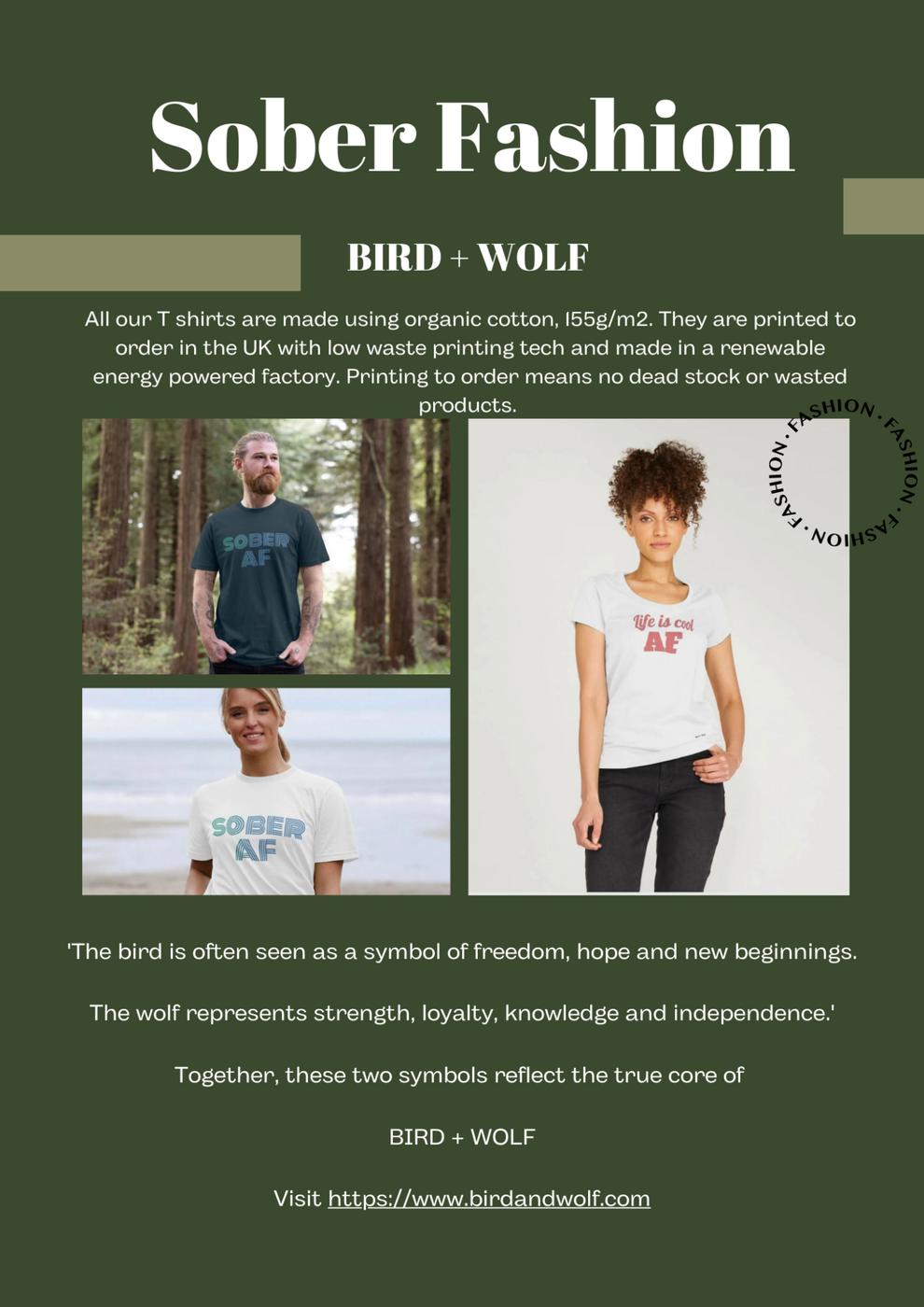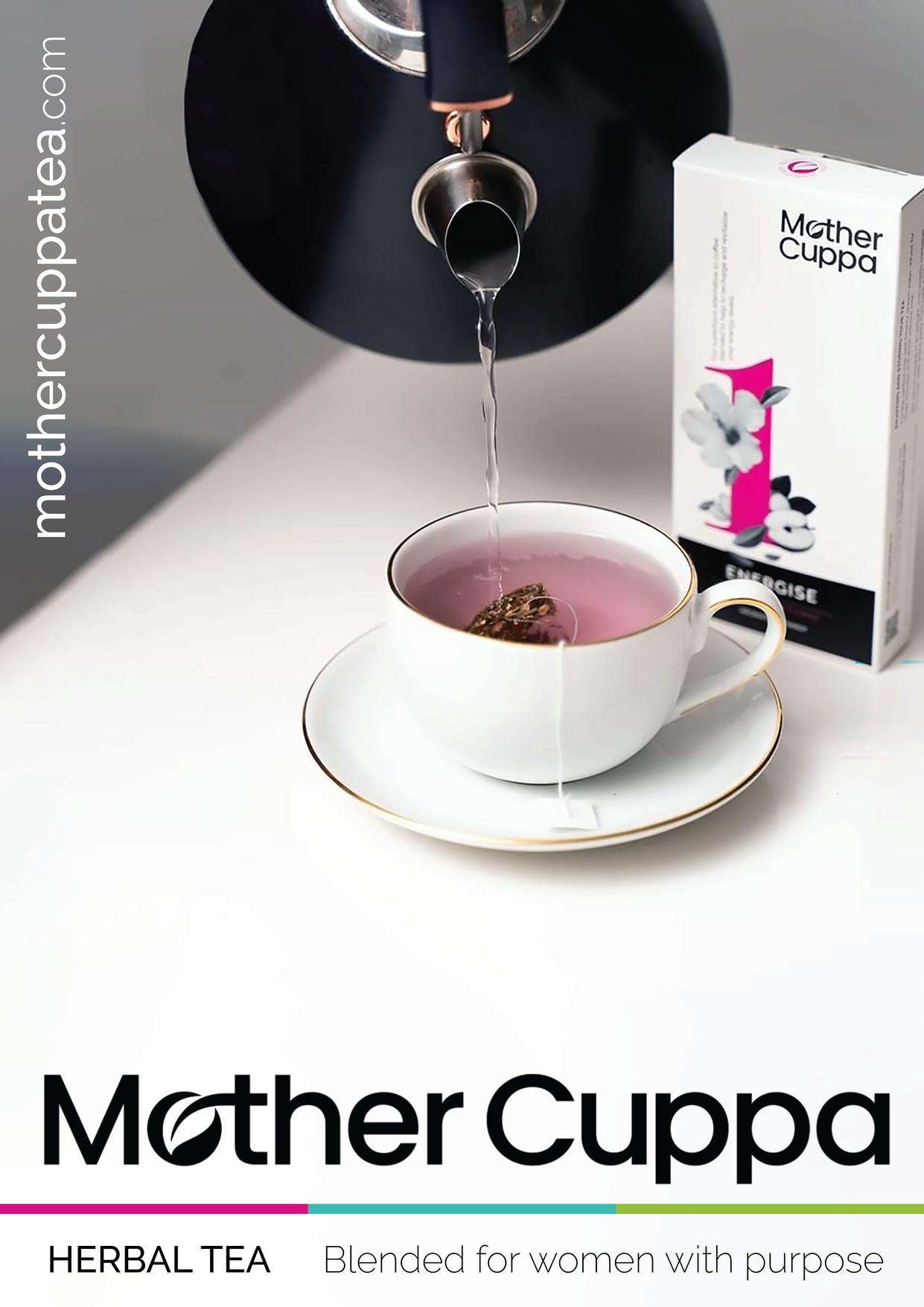THE SOBER EDIT

Sobriety for his health, future and healing from the past


Sobriety for his health, future and healing from the past
22-23
Tanya Bardsley Interview
26-27
Matt Pink - Dryy Fest
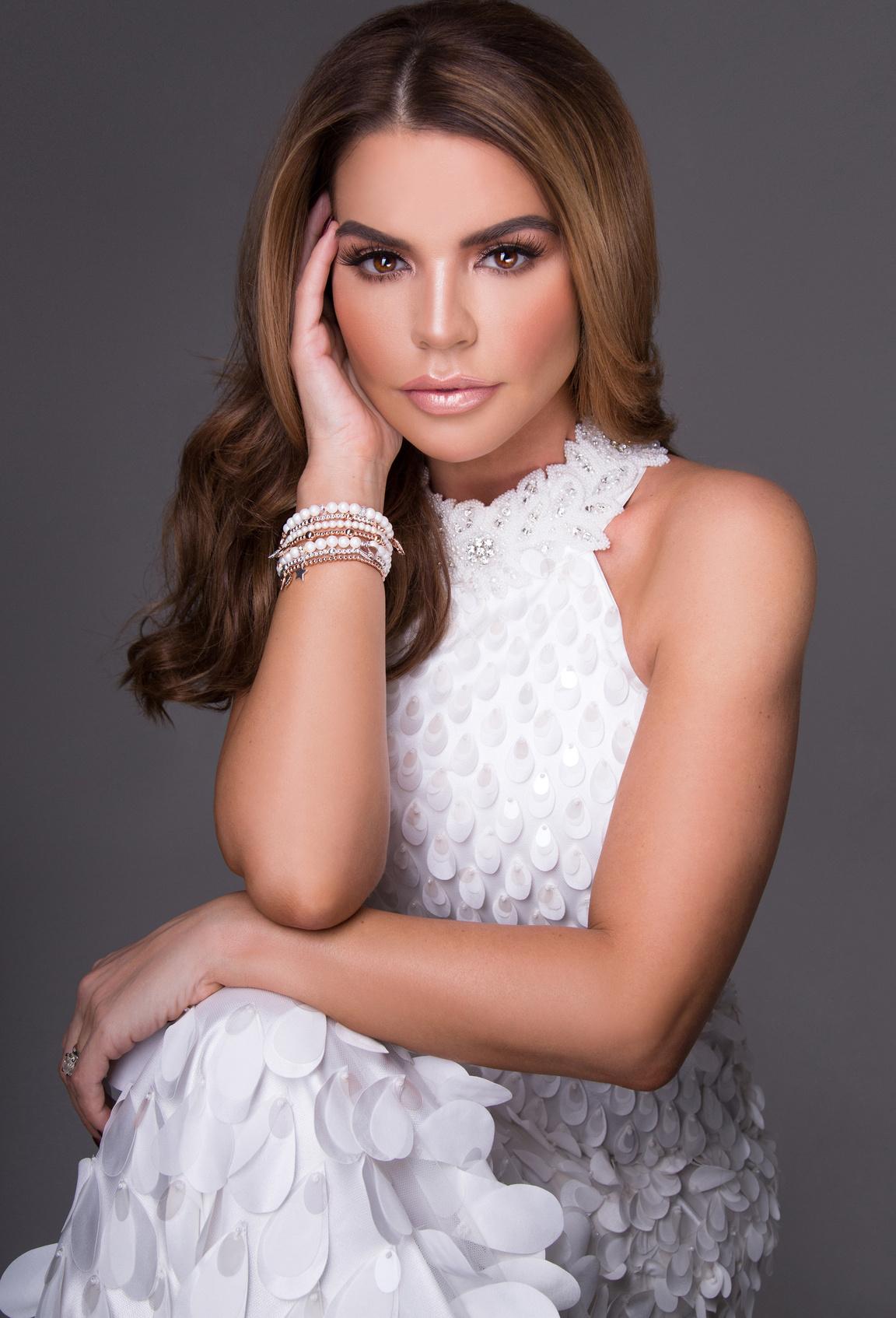
04
Editor's Note
05
32-33
Lorri Haines Interview
Don‘t Wait For Rock Bottom by Hadley Sorensen
06
Take Back The ‘Lost Hours‘ by Nicholas Bunney
09
Is It Fab? Navigating Triggers By Janey Lee Grace
10-11
To Drink or not to Drink? & Poem By Donna Ashworth
12-13
Love On The Rocks by Katie Taylor
14
Stepping Into Spring By Kate Drummond
15
How Much Shame and Guilt? By Larisa Barnes
16
What I Do When I Miss The Party By Dana White-Guerrie
17
What Does Sober Curious Actually Mean By Jo
18-19
Fear Of Missing Out by Luke Bayliss
20
A RoadMap To Sobriety By Cind Anderson
24
Navigating My Own Sobriety by Maria
43
Clubbing And Booze Always Went Hand In Hand by Ginny Koppenhol
44
It Is Endometriosis Month by Trish Tucker May
25
46
Your Best Days Are Ahead Of You by Kate Davidson
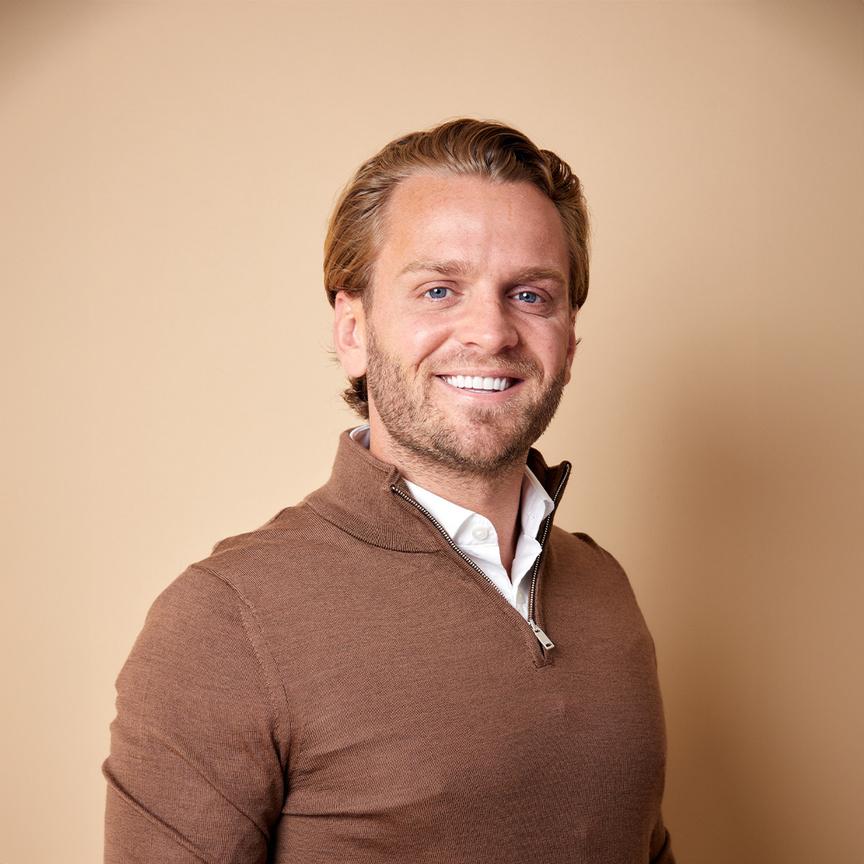
Why Don’t You Just Have A Couple?
By Laura Davies
28
Growing Up, It Was Normal To Drink, To Start Young, Even Expected by Alisa Herd
29
I Commit To My Sobriety Everyday
By Janelle French
30-31
Changing The Narrative
By Aideen Hennessy
35
Alcohol-Free Adventures: 5 Sober Travel Tips For An Unforgettable Journey
By Megan Arabian
36
Netflix And Drink
by Duncan Bhaskaran Brown
31
Recovery Roadmap
By Whitney Combs
38-39
Turning A Dream Into A Reality
By Jane Bryan
40
Drinking Culture At University And The Pressure To ‘Fit In‘
By Róisín Hamilton
41
Hide And Seek
By Paul Summers JR.
42
Embracing Whole Foods
By Archana Patel
45
A Tom Collins - The Nostalgia By Anonymous
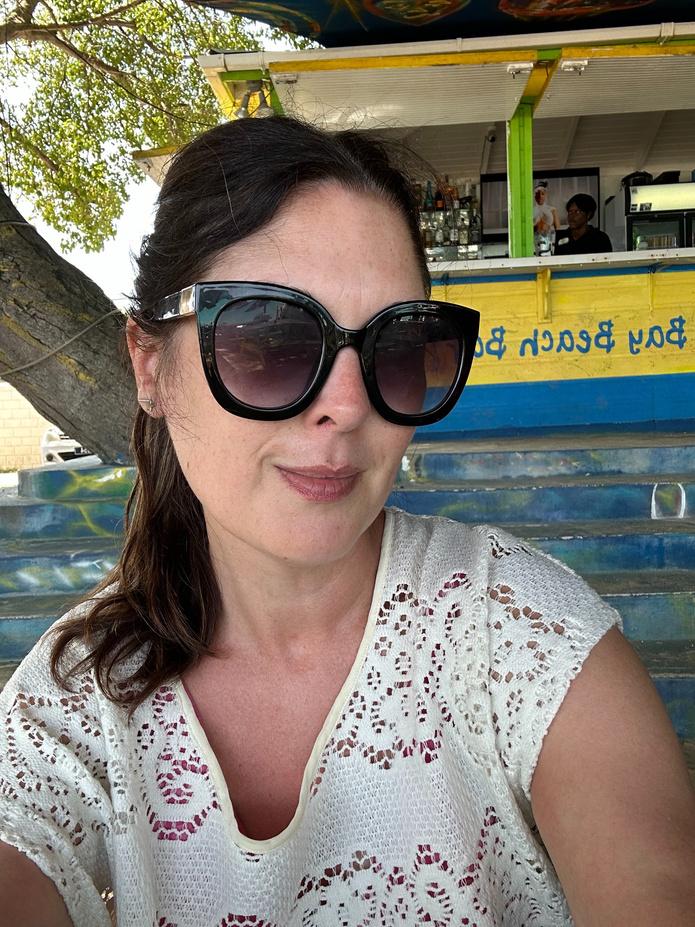
Welcome to our fourth edition! I'm absolutely beaming with gratitude for the incredible response we received after our first three editions – your heartfelt reactions truly warmed our hearts! The Sober Edit has reached readers in over 40 countries, showcasing just how strong and connected our global alcohol-free community has become.
As we continue on this journey, I'm beyond excited to witness our community grow even more in our fourth edition. The Sober Edit isn't just a magazine; it's a celebration of our strength together and the amazing power of sharing our stories. We're breaking down barriers, challenging the norm, and supporting one another as we strive for lives that are healthier, happier, and alcohol-free.
In this latest edition, we've crammed it with an even bigger dose of inspiring tales, useful tips, and cool resources to have your back on your sobriety journey. Whether you're just starting out or you've been walking this path for a while, we hope you find stories and wisdom that feel like a cosy chat with a friend.
What makes this community extra special? It's more than just a readership; it's like having a bunch of pals who get what you're going through on this sober journey. Your stories, your comments, your support –they all make this community vibrant and remarkable.
A huge thanks for being a part of The Sober Edit family as we launch our fourth edition. Dive into this one, and remember, you've got a crew cheering you on. Together, we're growing stronger, sparking change, and lighting up the way for anyone looking for a life that's alcohol-free.
With gratitude,
Becki x
Several years ago, I stopped at the store for toothpaste on my way to morning yoga. In the checkout line, a dishevelled-looking woman rudely cut in front of me to buy a 4-pack of small wine bottles. When I got to my car, she was parked next to me. I watched as she opened those bottles one by one, chugged them down, and tossed them over her shoulder into the back seat. I sat there for a minute, trying to pick my jaw up off the floor as she sped out of the parking lot.
I wasn’t yet ready to evaluate my own relationship with alcohol, but the moment stuck with me. It became my mental image of what someone with a “drinking problem” looked like. Dishevelled, drinking cheap wine in the morning, driving under the influence—that was serious. The way I was drinking looked nothing like that, so in my mind, it was fine.
I had no idea what was going on in that woman’s life. I don’t know if she was at her own version of rock bottom or if that day was an anomaly. All I know is that, at the time, she fit my preconceived notions of what it looked like to struggle with alcohol. Like so many of us, I had been conditioned to think that there are only two categories of people. Either you’re a “normal” drinker, or you have a problem. Black or white.
For years, my intuition nudged me, whispering that something was off in the balance of my life and that alcohol was the culprit. I ignored that nudge for so long because I looked nothing like that lady in the car. I had my act together. I was successful and driven. My family and business were thriving, and I was full of inspirational quotes for social media. I was hurting on the inside, but I wasn’t experiencing any outward consequences of my drinking. Ridiculously, I believed that quitting was only something you did if you hit rock bottom, whatever that really means. You only stopped drinking totally if you were at the lowest of lows and there were no other options. Otherwise, you were supposed to push through.
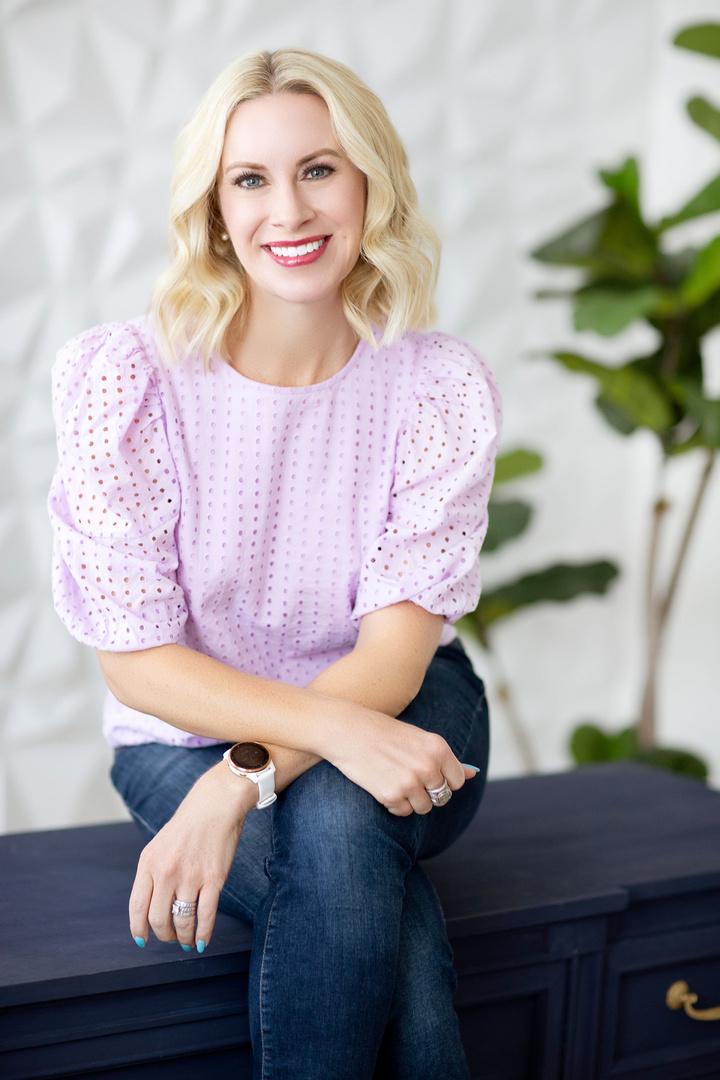
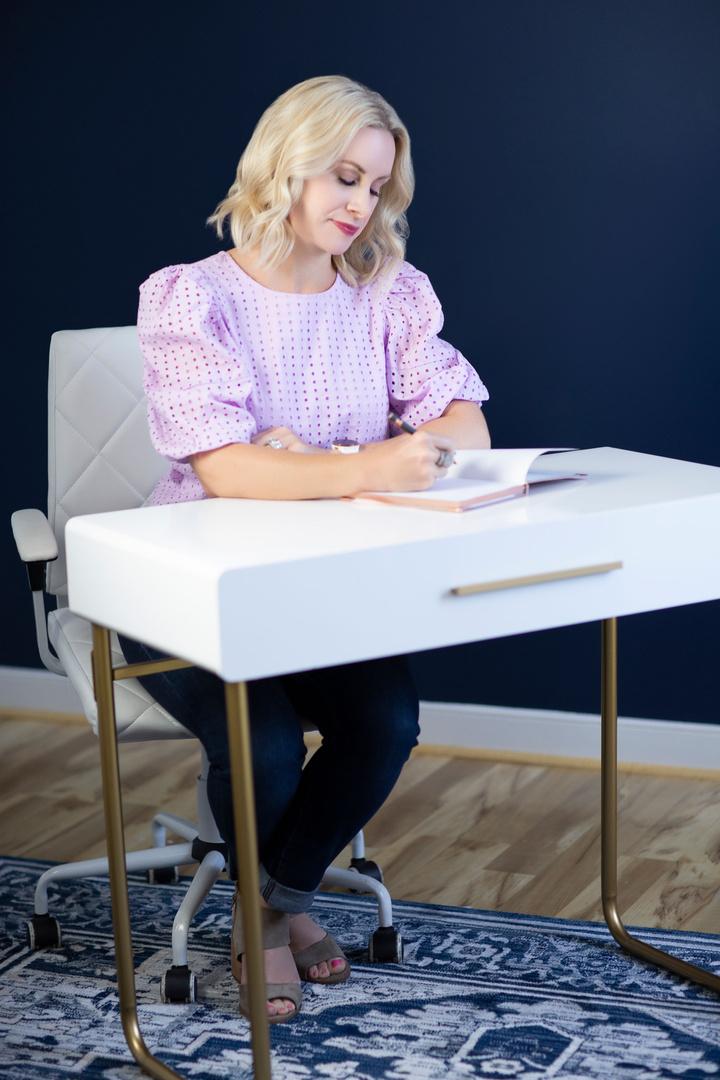
Thankfully, I started to pay closer attention to what my intuition was trying to tell me. I realised that even though I looked nothing like that woman in the car, my drinking was a problem for me, and that was all that mattered. I didn’t need to meet the criteria on some checklist, and I certainly didn’t need to wait for my problem to get any worse before I took action. I embraced the idea that anyone can quit drinking at any time for any reason, and it was the most powerful choice I’ve made for myself.
It turns out that the whole concept of rock bottom is nebulous and subjective. Things can almost always get worse. Don’t waste time testing that theory before opening your mind to the possibility of a change that just might change everything.
Hadley SorensenProving we don't have to hit rock-bottom to change our drinking Follow Hadley here
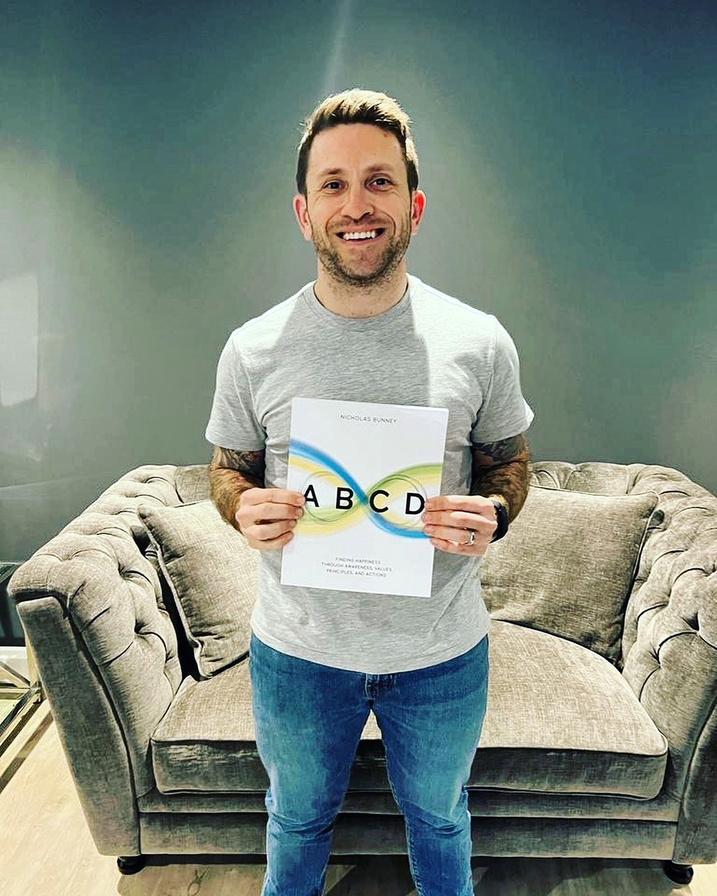
Many drinkers have a strange relationship with ‘productivity’.
They swing between two states:
The discomfort of feeling overwhelmed and anxious for not making more of their lives; that sense of dread that they should be doing something but are either too hungover to be bothered or too focused on getting to the next drink.
The relief of actually achieving something despite these factors – a full day’s work, the chores in the house, finishing a project last minute etc. This is surviving not thriving.
Some, if not ALL readers of The Sober Edit will be familiar with these feelings. Drinking alcohol and the resulting hangovers is a complete horror show for any form of worthwhile productivity. Hours spent each morning recovering back to some sort of normal, then days spent with an anxious state of overwhelm, don’t leave much cognitive space for any meaningful pursuit or purpose. Adding to that lack of good quality sleep, wasted hours in bed or the pub later than necessary and it’s no surprise most people feel they don’t have much time in their lives to achieve anything other than – WORK, DRINK, SLEEP, RECOVER, REPEAT.
I was in exactly that cycle for many years. As a futures broker in London, I presented as someone who had a ‘great life’ with all the trappings of a good job, family, and possessions most people aspire to. But something was missing.
No matter how much I threw myself into my social life and work, there was a growing sense of unease that I
wasn’t reaching my full potential. I felt a real sense of fear that the life I was living was not authentically making me happy. The failure to keep promises to myself when I occasionally set myself goals or challenges (diets, exercise plans, house projects etc) started to make me feel like I wasn’t behaving like the person I wanted to be.
This was one of the main factors that led to me taking a break from alcohol. 3 months was the longest I’d ever been sober and though it was daunting I was determined to do it and clear the cobwebs in my mind so I could see what I was missing out on.
The difference was UNBELIEVABLE.
Suddenly, my sleep improved and my energy levels throughout the day were constant. I could wake earlier and stay up later and still get a good 7-8 hours of sleep each night. I used this time to go to the gym before work (instead of promising I'd go after then going to the pub instead). My weekends also opened up - I still saw friends and went out but the hours wasted on hangovers and anxiety were now available to me for the first time in decades.
I'd taken back the 'LOST HOURS' that alcohol had stolen from me - but what would I do with them?
Luckily, alongside the physical time you earn from ditching the booze, you also gain mental clarity and comfort in your own decisions. You make choices for your authentic values, you keep promises, and you're quietly confident that your actions align with the person you want to be. I changed careers and found more joy in my work after years of toxic environments that I hated.
In a world where so many people are trying to sell drinks, pills, and programs to make us more focused and productive - sobriety offers 10x the effect at 0% of the cost!
After a few years of breaks from alcohol, I decided to go fully sober and pursue a passion of mine that I'd always dreamt of but 'never had the time' to attempt.
In March 2023 I published my first book "ABCD: Finding Happiness..."
A self-development book helping readers to assess their authentic values, find balanced approaches, be consistent in their actions, and have the right sort of discipline - I believe these factors contribute to our happiness.
Though the book is not a 'sobriety book', there is no way I could have ever achieved it if I were wasting those lost hours on drinking. I had the energy to write after work, at weekends, during my son's tutor sessions, before work and so on for 2 years consistently - this filled me with pride and confidence before I even sold a single book!
Now, I work with charities, help readers of the book, and write articles for brilliant publications like The Sober Edit - I have a sense of purpose and a level of productivity that I could only dream of. And it's all down to my sobriety.
So, if you're reading this and feel overwhelmed or lacking meaning in your life, stop drinking for a period, take back those 'lost hours', and supercharge your productivity - you'll never regret it.
Nicholas Bunney Publishing
£14.99
Available HERE: https://amzn.eu/d/fqY3mMc
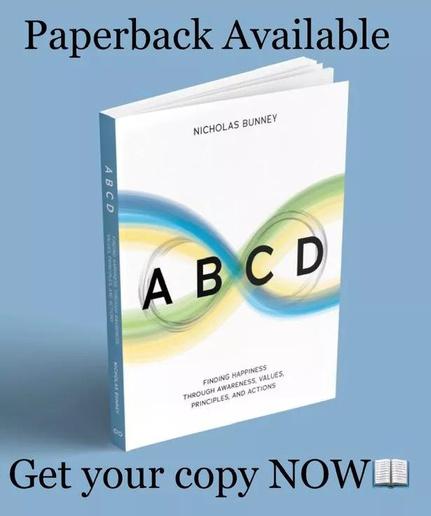
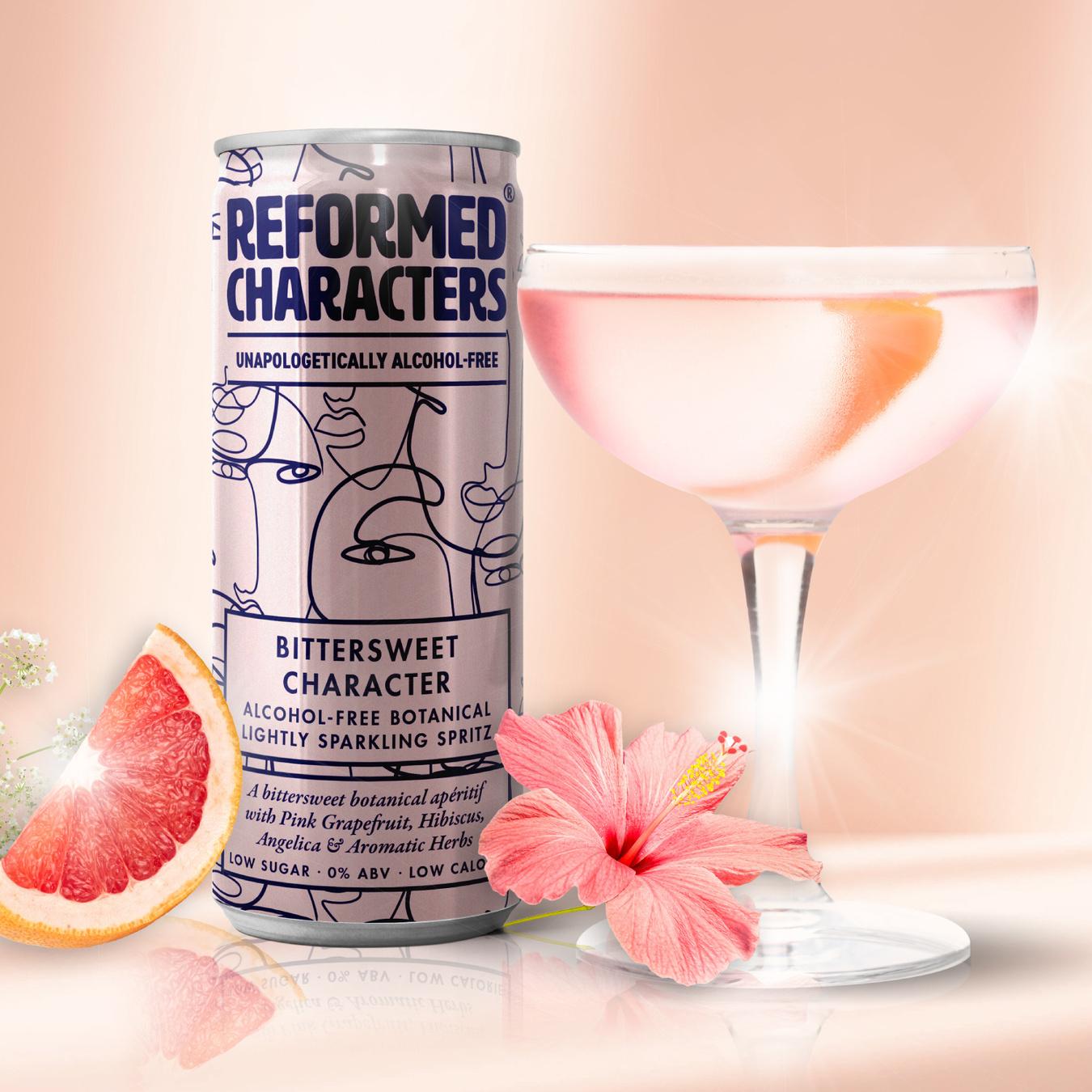

Have you ever found yourself in a situation where, despite your best intentions, you end up reaching for that drink? We’ve all had moments when triggers and emotions seem to hijack our rational thoughts, leading us down a path we promised ourselves we wouldn't tread again. It’s usually down to the ‘Fading Affect Bias’, more commonly known as FAB, but sadly, it’s anything but! It’s a psychological phenomenon in which memories associated with negative emotions tend to be forgotten more quickly than those associated with positive emotions.
Understanding the trigger-reaction cycle and how to navigate it can be the key to staying on track.
Triggers, those sneaky little prompts that set off a cascade of emotions and reactions, can be as subtle as the scent of alcohol or as overt as seeing someone enjoying a drink. Our brains, wired for survival, quickly process these stimuli, often before we even have a chance to consciously recognise them. The amygdala, our brain's early warning system, kicks into gear, flooding our bodies with emotions before our frontal lobes, the rational thinkers, even have a chance to catch up.
Despite our best intentions, we sometimes find ourselves reaching for that drink without fully understanding why. The perception of a trigger sets off a whirlwind of emotions, from excitement to stress, that can cloud our judgement and lead us astray.
So how can we interrupt the cycle and stay on course?
Mindfulness and awareness
By developing an awareness of our emotional responses, we can begin to untangle them. Deep breathing, or meditation, can help us observe these thoughts and emotions without immediately succumbing to them.
Pause.
Put in a deliberate pause between the trigger and our reaction. By taking a moment to reflect on the situation and the potential consequences of our actions, we can begin to regain control.
Cognitive Restructuring
Notice, challenge, and reframe negative or automatic thoughts, then we can shift our perspective and pave the way for healthier behaviours. There will always be a healthier way to cope with stress than self-harming with alcohol!
Keep a record of positive associations
Note down all the blessings and benefits linked to choosing not to drink, enjoying alcohol-free drinks with friends, and recalling how much better we've been feeling since quitting. Positive reinforcement can go a long way.
Next time you’re feeling wobbly, ask yourself, "Is it FAB?" Harness the power of mindfulness, cognitive restructuring, and positive reinforcement, and navigate the twists and turns of sobriety with confidence.
Janey Lee Grace runs The Sober Club, hosts the Alcohol-Free Life podcasts, and trains Sober/ Selfcare coaches www.thesoberclub.com
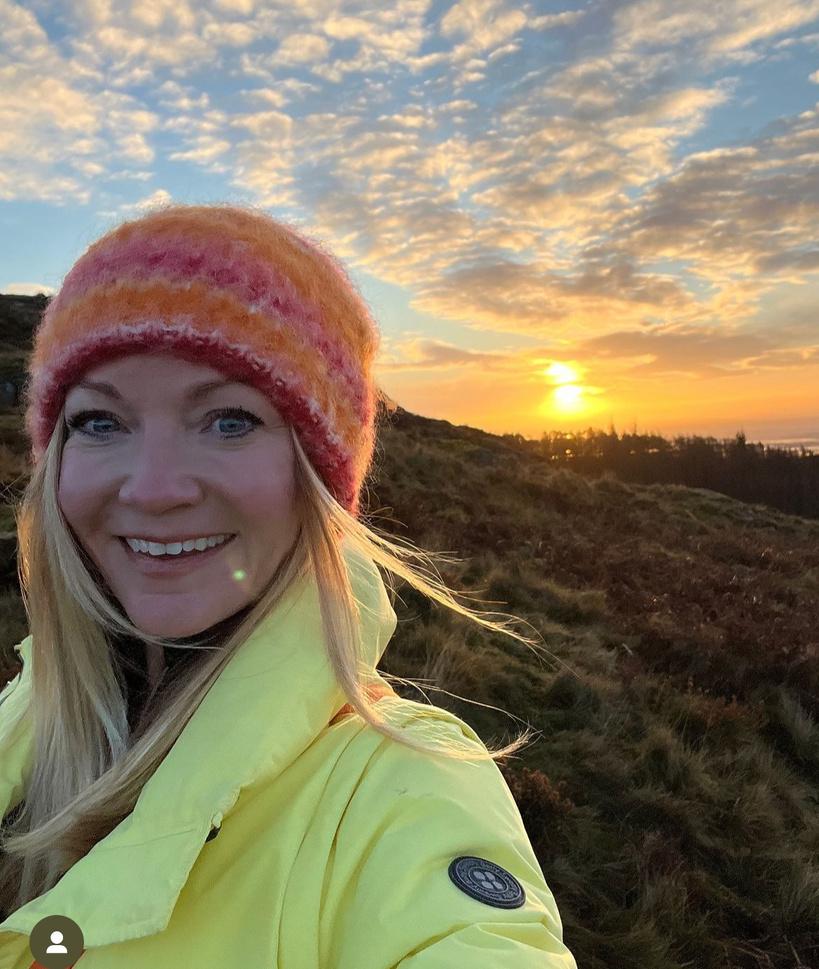
I haven’t drunk alcohol since April 2023 and I can’t quite believe I can say this.
I am not an alcoholic or even a huge binge drinker, but perhaps I was becoming increasingly alcoholdependent. I haven’t given my relationship with it a name just yet. But I know it was taking up my time. And my energy. And depleting me in so many ways, that the negatives began to outweigh the positives. And that’s when we must cut and run, right? But how to cut and run from a habit that is so socially ingrained and so deeply embedded and how to know if it’s an issue or not?
I go by the premise that if you are thinking about it too much - reminiscent of my calorie counting days - then it is a problem to be explored. I would spend a lot of my day from mid-week onwards arguing with myself over whether to drink wine that night or not. Did I deserve the ‘treat’? Could I wait one more night and be even more deserving? And when I did drink, I would monitor carefully, checking how much of the bottle was gone and adding up scores in my head. To and fro I would go... counting and wasting head space on something that brings me nothing.
But wait, my ego would cry; it does bring you something... It relaxes you and melts away your stress, does it not? And of course, truly, practically and intrinsically we know, WE KNOW, that it does none of those things. It switches off your frontal lobes, is what it does do. It checks your soul out for the night and lets your ego take the wheel. And then, the next day, when your lobes are back online but swimming in poisoned waters, the anxiety of what the ego did or
said whilst the soul was overruled washes over like an un-surfable whiteout wave. Shudder… and yet, the chemical imbalance as the poison clears feels so terrifying, we can’t wait to go back to that state of feeling medicated. It is a trap.
All of this, I knew, as we all do. But I worried that removing alcohol from my life would also remove the joy, the fun, the socialising and the general lighthearted bonhomie element, much-needed in a world like ours. A little inner voice would assure me that once the habits were reset, this state could be found again, in other ways. It could be created at home, a homemade relaxant and stress relief without the nasty side effects! What a thing! But getting through the jungle of reform was ahead. The task of getting through those initial few weeks, as your ego writhes in agony and rages because you have removed its power and its fun. The work of constantly assuring your soul, that you will ignore that noise, and stay within your peace until the air clears. And the air does clear. And it feels like the first clear air you’ve ever drawn!
If I could tell you only one thing I have gained from losing the booze (there are so many), it would be this… I’m always there. I’m always entirely fully there. Wherever I am. It’s me there, not a version of me, not a caricature of me, just me. I only have myself to worry about - no loud alter-egos to keep in check and dissect the behaviour of. Just me. Always me. Every time. What a thing.
It’s not what is in the glass that matters, it is what is in your mind.
Set your intentions to freedom, let go of what no longer serves you, be present and see what is around you and you will have fun. Promise.
Sometimes you have to give up things you really like to get the things you really need. And it’s not an immediate switch, like handing ransom money to a kidnapper. There is a barren, terrifying period of nothing, where regret and familiarity plead with you to reconsider. And you have to be strong, use hope as your shield. Hope, that behind the thing you thought was great, is something much better, waiting for a clear space. Sometimes you have to give up things you love to get the things you need. And it’s worth it, my friends. I promise you, it’s worth it.
Donna AshworthSunday Times bestselling poet/author and lover of words.
Follow Donna here
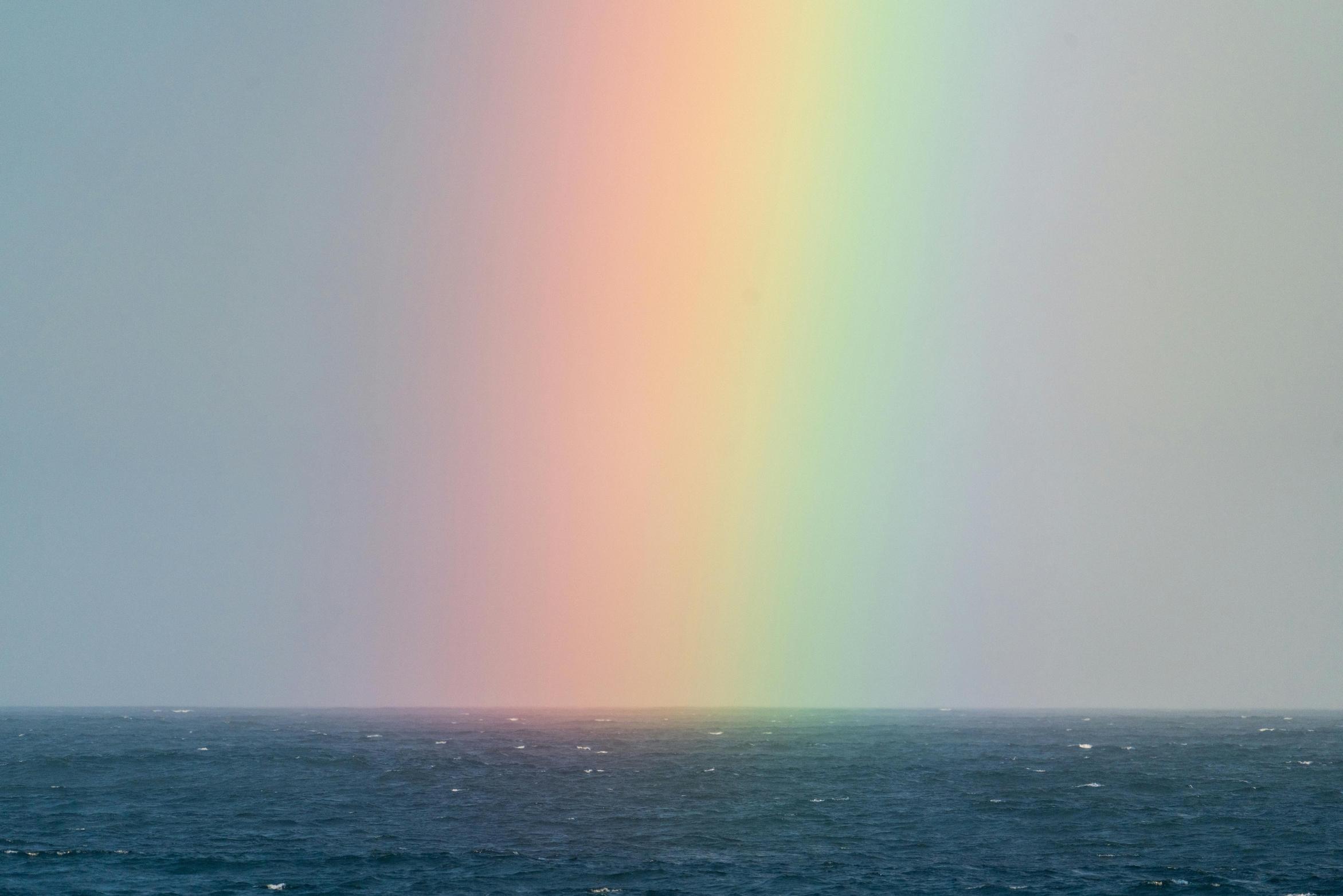
Navigating a relationship where only one of you drinks can be like trying to walk a tightrope in a thunderstorm. It requires a delicate balance, constant attention, and the resilience to withstand unexpected pressure that could hurtle you off.
I thought that giving up alcohol would mean that the stuff no longer had the power to mess with my life. I was free of it, finally. And good riddance. But being in a relationship where one of you drinks reveals a different reality. The ugly beast that is alcohol, which I fought to escape, was still finding a way to intrude. And now, it seemed, it wanted more than my health and happiness; it wanted my marriage.
I am over two years sober now. And I lived those first two years with a husband who still drinks. More than occasionally. And at home. And it’s something people ask me about a lot.
How do you do it? How can you stand it? Why didn’t he give up? How long will you wait? Why don’t you ask him to stop? All good questions, but I’m afraid there isn’t an answer to the question, ‘How do you stay in a relationship with a drinker when you’re sober?’. As we know, all relationships are different, and navigating a marriage that is half-cut is a journey as individual as your wedding day. Saying that I can give you an insight into my story.
I need to explain that my husband, Nick, has been supportive of my sobriety from day one. He has championed me, congratulated me, and told me how incredibly proud of me he is. He never once tried to get me to drink or suggested that maybe this wouldn’t have to be forever, and I think that made it even harder. Because I love him, and after 16 years together, he is still my best friend. Someone I look forward to seeing at the end of the day. But his support and clear understanding of how good sobriety is made me confused about why he still picked up that bottle of wine at 6 p.m.
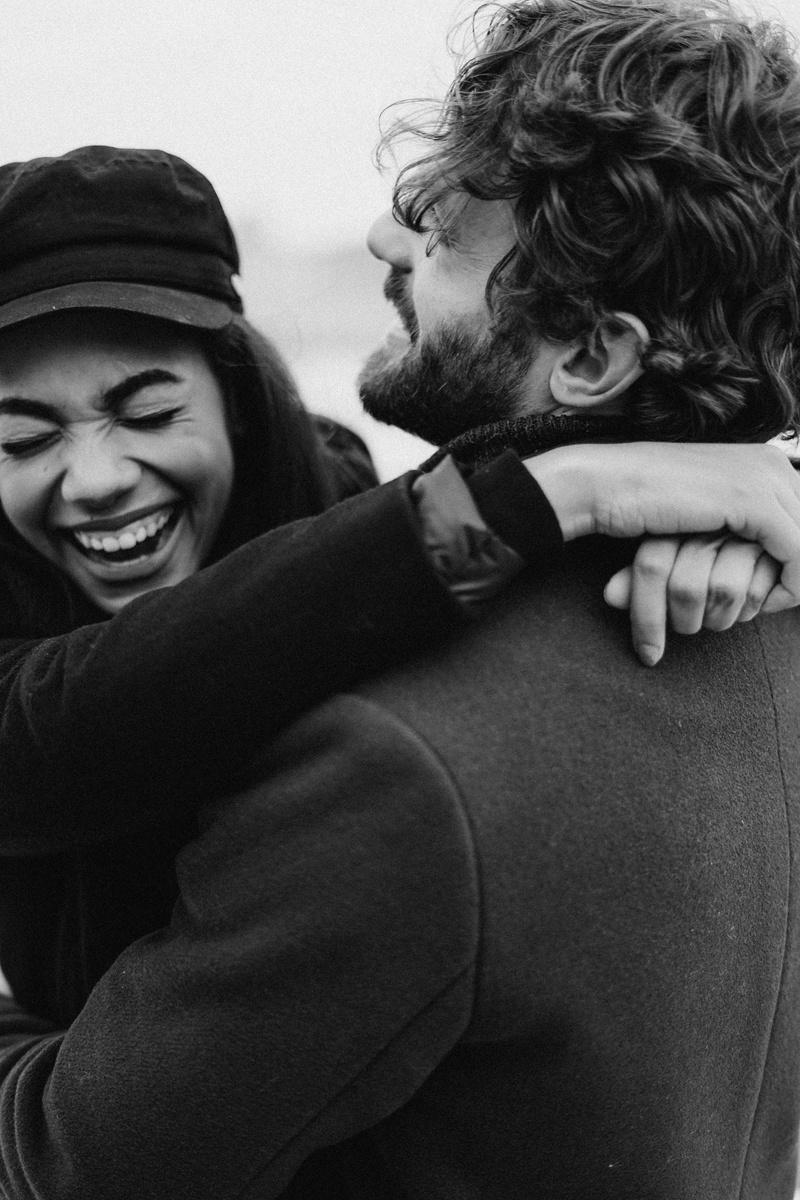
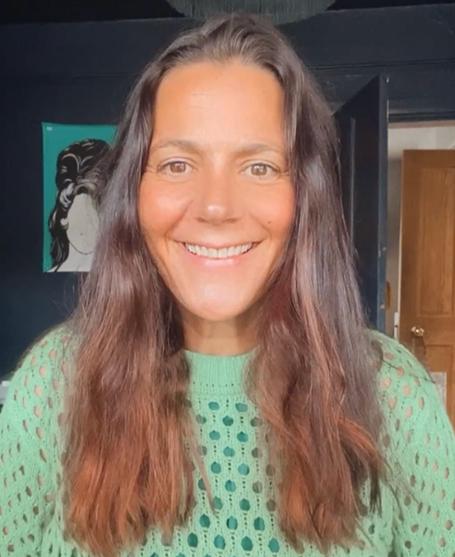
I have spoken to a lot of people (male and female) whose relationships have totally broken apart in the same situation as mine. But most (if not all) of them have admitted they weren’t that happy before or that they realised alcohol was the main thing that was keeping them together After all, being with someone who doesn’t mind you drinking every night and who never questions how much you drink because they drink the same amount is incredibly enabling. Something a big drinker actively searches for in a partner. But take one glass out of that equation, and things start getting awkward.
When I decided to quit, I did it for me. I had to. It’s the only way. And I realised very soon, through listening and reading other people’s accounts of sobriety, that you can’t force someone to quit. And I didn’t ever ask him to I have been lucky in that other people drinking around me doesn’t trigger me. And while I avoid drunk people like the plague, it seemed to be manageable living with someone who drank.
When he drank too much, he slept in the spare room. When he stank of stale booze, I didn’t kiss him. But for the first 6 months or so, I was just concentrating on ME not drinking. The problems started when my attitude towards alcohol changed. Instead of just not wanting to drink it, I started to despise it. What it did to people, the things it took, mentally and physically. The solemn and sad mood it leaves people in. And that’s what eventually got to me. Watching someone you love do something that is hurting them is hard.
I faced one of the trickiest dilemmas of my life I couldn’t tell him to quit. He wasn’t making any indication that he would. But I had to be honest about how I felt. The last thing I wanted to do was announce, after 16 years and 2 kids, that I was off because I’d been secretly hating this situation for so long. But how do you deal with that? If I said, ‘I will leave if you don’t stop, that’s an ultimatum. If I waited and didn’t say anything, that’s not fair and doesn’t give the relationship a chance. I was in a catch 22.
I believe a relationship can work when one of you is sober, provided both of you are content with the arrangement. I also think it takes time not only to deal with your own sobriety but for others to come to terms with it too. After all, their favourite drinking buddy is no longer drinking. But there is no getting away from the fact that, as a person who doesn’t drink, I didn’t want to be with someone who did.
I realised that, in the end, it was a waiting game. A sinister game, yes, but one I had to take part in. And one that was ultimately out of my control. I was honest about how I felt. And I focused on my own decisions. And I just had to accept that, at some point, it would probably become too much. I had no idea when that point would be. And I wasn’t ready to throw in the towel. But after two years, I could feel it was getting closer.
So, the plot twist. Nick announced that he was going to quit for a year, starting on January 1st. And so far, so good. The difference it has made is huge. I feel proud of him, and I can actually see him looking better, and having more energy, and I feel like there is hope for ‘us’. Not only does our marriage survive, but it thrives. I was lucky. And while I don’t know what the future holds, I am hoping that this is long-term.
My advice? Do you. Let them do them. Be honest. And if there comes a time when it becomes too much, you need to consider what the next move is. If you think about it, that’s the way we deal with anything in a relationship that becomes problematic. Whether it’s alcohol, food, exercise, gambling, work, laziness, or attitude. We need to either say we can live with it, it needs to change, or that the relationship has come to an end. I accepted those were my three options, and while I waited at the crossroads to see where I would be going, I focused on my sobriety.
Katie Taylor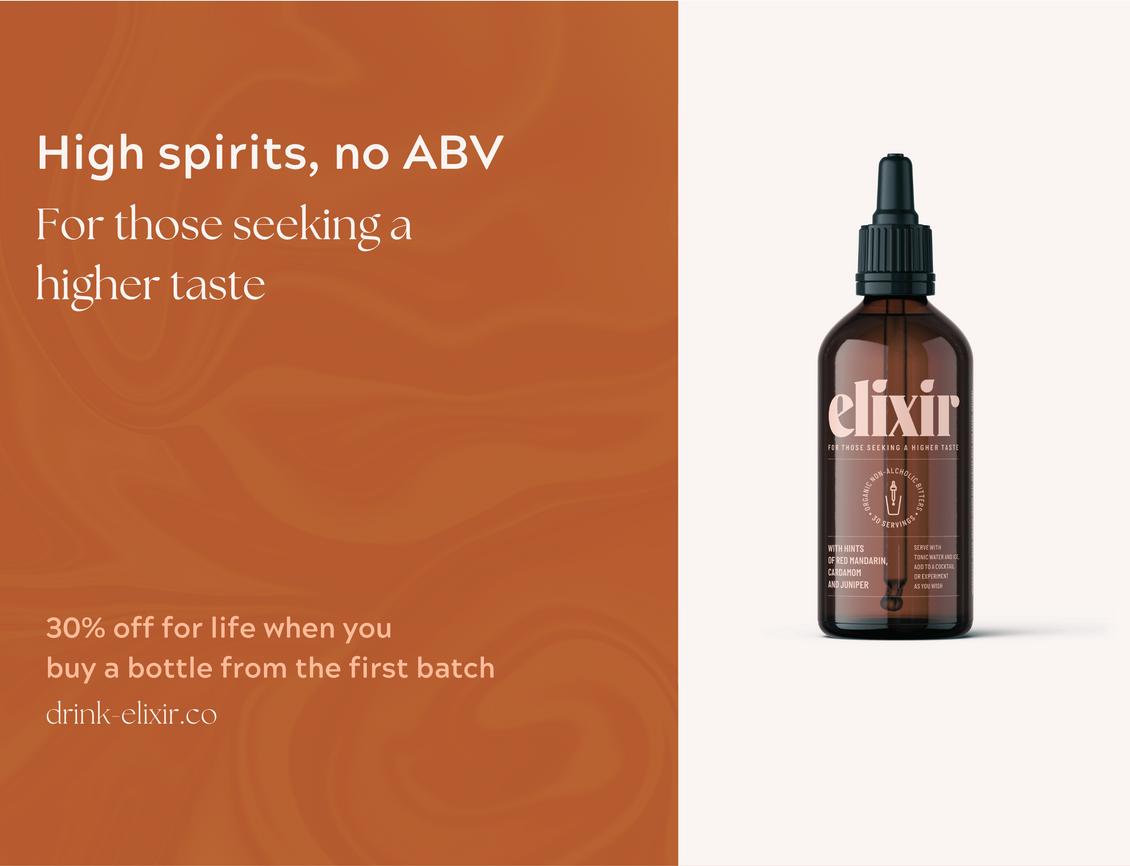
As the world awakens from its wintry slumber, the arrival of spring brings with it a sense of renewal and transformation. It's a time when nature sheds its frosty coat and bursts forth in a vibrant display of colour and life. Similarly, for those embracing a sober lifestyle, spring symbolises not just the changing of seasons but the dawn of a new chapter—one where they are in control of a life they love.
Spring is a season synonymous with health and vitality. The blossoming flowers, the fresh scent of rain-kissed earth, and the longer days all beckon us to step outside and embrace a healthy lifestyle. For those on a sober journey, this is the perfect time to reaffirm their commitment to well-being.
With sobriety, the body experiences a transformation akin to the awakening of nature in spring. The absence of alcohol allows for improved sleep, clearer skin, and enhanced physical fitness. It's like a personal renaissance, as your body and mind become more aligned with the natural rhythms of life.
Just as spring infuses the world with vibrancy, embracing sobriety can infuse your life with a newfound sense of vibrant energy. When alcohol no longer dulls your senses, you become acutely aware of the world around you. The colours seem more vivid, the laughter more infectious, and the moments more precious.
This heightened awareness is not limited to the external world; it extends to your inner self as well. Emotions are felt more intensely, allowing you to engage with life's ups and downs with clarity and authenticity. It's like seeing the world in high-definition, and it's nothing short of exhilarating.
Spring's arrival serves as a powerful metaphor for the transformative journey of sobriety. Just as the barren trees sprout leaves and the once-frozen rivers flow

again, those on a sober path find themselves in the midst of their own rebirth.
It's a chance to shed the old, unproductive habits and make room for new growth. Sobriety is not just about abstaining from alcohol; it's about embracing a holistic approach to life.
This might include healthier eating habits, regular exercise, and mindful practices that nourish the body and soul.
Sobriety empowers you to take control of a life you love. It's about reclaiming your autonomy, making conscious choices, and aligning your actions with your values and aspirations. Spring is a season of renewal, and it's an ideal time to set new intentions and chart a course for the future.
When you're sober, you are the captain of your ship, steering it towards destinations that bring you joy and fulfilment. The clarity and focus that come with sobriety enable you to pursue your passions and dreams with unwavering determination.
As you step into spring, embracing sobriety with open arms, you're not just turning the page; you're beginning a whole new chapter in the story of your life. It's a chapter filled with the vibrant colours of self-discovery, the sweet fragrance of authenticity, and the steady rhythm of living a life you truly love.
So, let the arrival of spring serve as a reminder that, like nature, you too have the power to undergo a remarkable transformation. Embrace sobriety as your ally on this journey, and step forward with confidence into the next chapter of your life. The season of renewal is here, and it's time to flourish.
Kate Drummond Dip. FTST IIHHT Holistic Life Coachwww.thepurposefullife.com
Think back to your days of drinking. How much shame and guilt did you feel? Shame in how much you drank, didn’t follow through with plans, had conversations that you did not recall the next day, and many more reasons that we had immense feelings of shame about. Shame and guilt were an everyday part of my life when I was drinking. People would ask me questions about our conversation the day before, and I had no recall whatsoever of the conversation. I would turn a deep shade of red for my typical pale Irish complexion. Where did my shame come from? Deep inside me, it lived and breathed.
I can recall being newly sober and being so embarrassed about it. I only told a very few people around me that I was ashamed of being sober. What?! Wait a damn minute! I got sober, so I did not have to feel ashamed anymore! You see, I am an ER nurse, and healthcare professionals can be some of the most judgmental people around. I can’t recall when, in my sobriety, I stopped being ashamed (probably close to my one-year mark) and started to be proud of my sobriety. I fought through some very deep demons to get sober, and damnit, I was not going to hide it anymore. Rather than put an ad in the paper or shout it from the rooftops, it was a slow build. One day someone at work said, You always leave at 6.30 p.m. on Wednesdays. What are you going to do at AA or something? It was that moment; I remember it to this day, 10 years later. Why yes, yes, I am. My very first open admission of being an alcoholic to anyone outside my inner circle. It was so easy after that; I began to be an open book about my sobriety in every aspect of my life. I would see fellow RNs and MDs in the rooms with me, and they would always say they wish they had the courage to be as open as me. In the hospital halls, people would quietly come up to me and admit they too were in AA. I cannot tell anyone else to be open about this shitty disease we have; it must come from within them. But it is a disease, and we, the alcoholics, know that after going through the 12 steps, but outsiders don’t believe or don’t know that we truly cannot stop drinking on our own.

We moved 6 years ago from NJ, where I lived my entire 48 years and worked in the same ER for 31 years. I was open to all my coworkers about being in AA in my new ER, and they were all supportive. One day, a pharmacy tech overheard me and said, “Don’t tell people that; they will judge you." WOW! Shame slammed right back into me like a train for all of 30 seconds. I stood taller and straighter and said, “Let them.” You see, people who sit and judge us have a fundamental issue with themselves that they are projecting onto us. The sooner you realise it has to do with them and not us, the sooner you are on the path to freedom from shame.
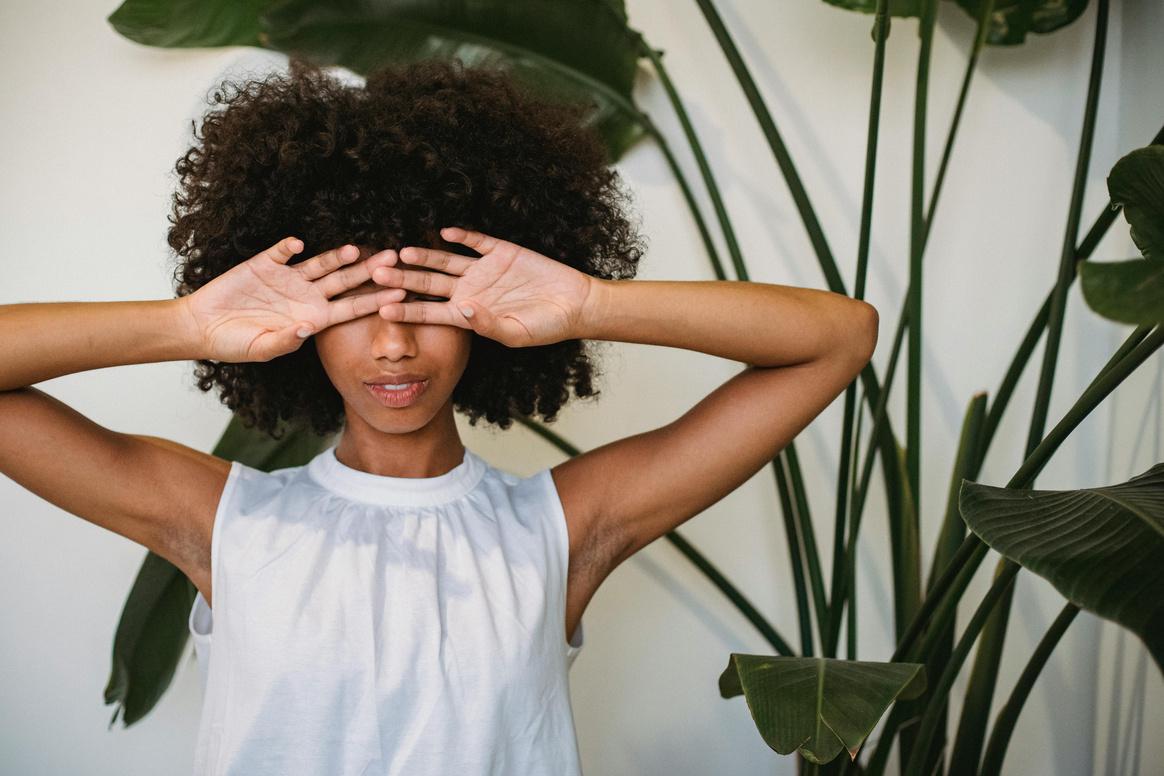 Larisa Barnes Follow here
Larisa Barnes Follow here
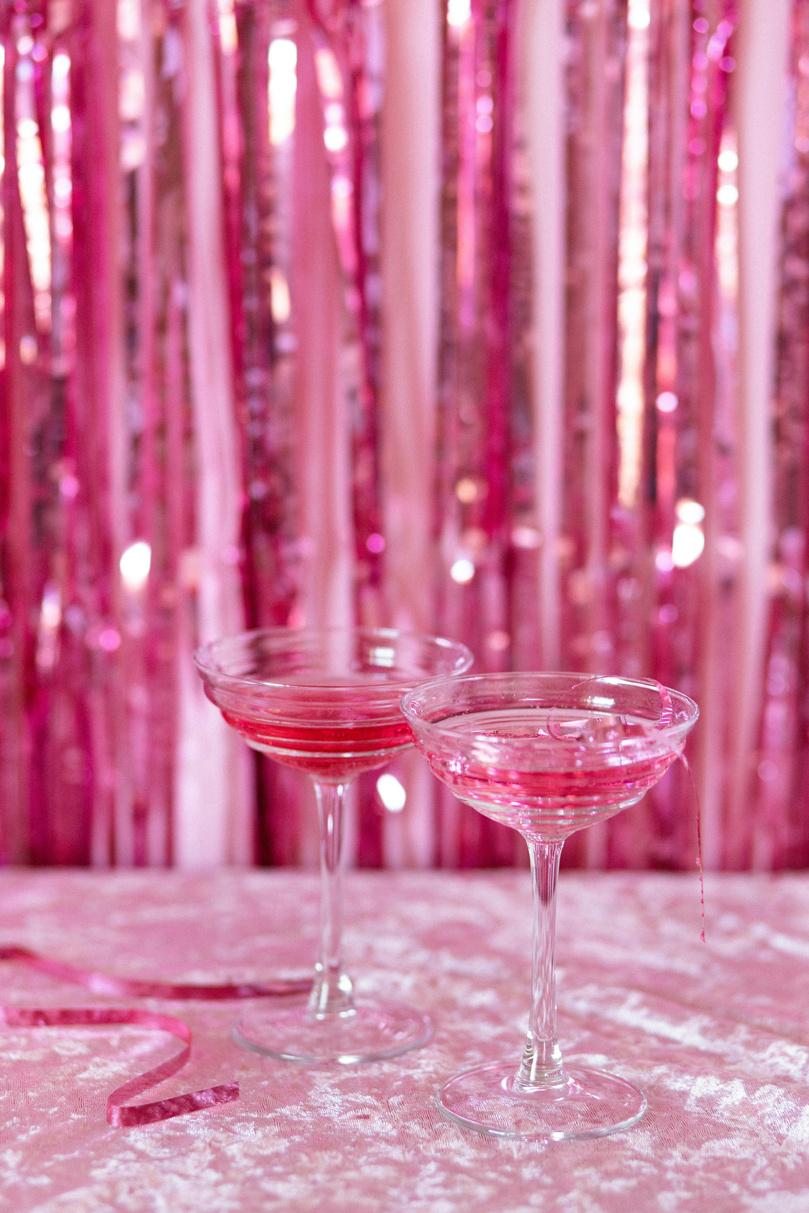
This can look reactive, hiding away, or isolating. Physically avoiding people, places and things that activate me. The intentional sacred pause though, is a proactive tool to tend to my psyche and spirit. Here, I use solitude as a method to refill my cup. I learn how to be comfortable in my own skin and alone with my thoughts and mind.
Eventually, I was able to enjoy my time alone and not just tolerate myself. I have begun to use alone time engage with the deeper parts of myself. I *drop allow my breath, body and mind to slow down. began with the Calm app, doing short guided meditations. I use the Insight Timer to meditate sleep stories to quiet my mind before sleep. Dropping in can be anything from nature walks to journaling, yoga, somatics or dance. Anything that speaks to that allows you to *hear* what your body wants needs.
The main thing that helps me sustain my sobriety connection. Initially, I joined the I Am Sober app track my days sober. Then I found the community. read posts and found like-minded people who knew my struggle. The posts led me to informal Zoom meetings. I joined one day, shaking and dripping sweat. That day I shared my story and changed my trajectory.
From there, I made sober friends who became brothers and sisters. I broke free from my self-imposed limitations and became of service. When I did this, the opportunities started coming!
If you want to be living your best life, then take your eyes off other people’s drinking and notice how alcohol is impacting your life. There are always going to be people who drink less than you and if you really try, you’ll always find people who drink more than you. Any way you slice it, comparison keeps us stuck.
When realizing there’s a full drinking spectrum, you may find yourself in the “gray area”. It may be that you can physically stop anytime you want but “staying stopped” may be more difficult from an emotional or mental perspective. Personally, I had a thinking problem more than drinking problem. I wasn’t broken but my thinking pattern was and the good news…that’s fixable and you CAN change! It’s never too early or too late to change your relationship with alcohol.
It can be tempting to ask yourself the question, “Is it bad enough?” but the better question to ask yourself is…”Is it good enough for me?”
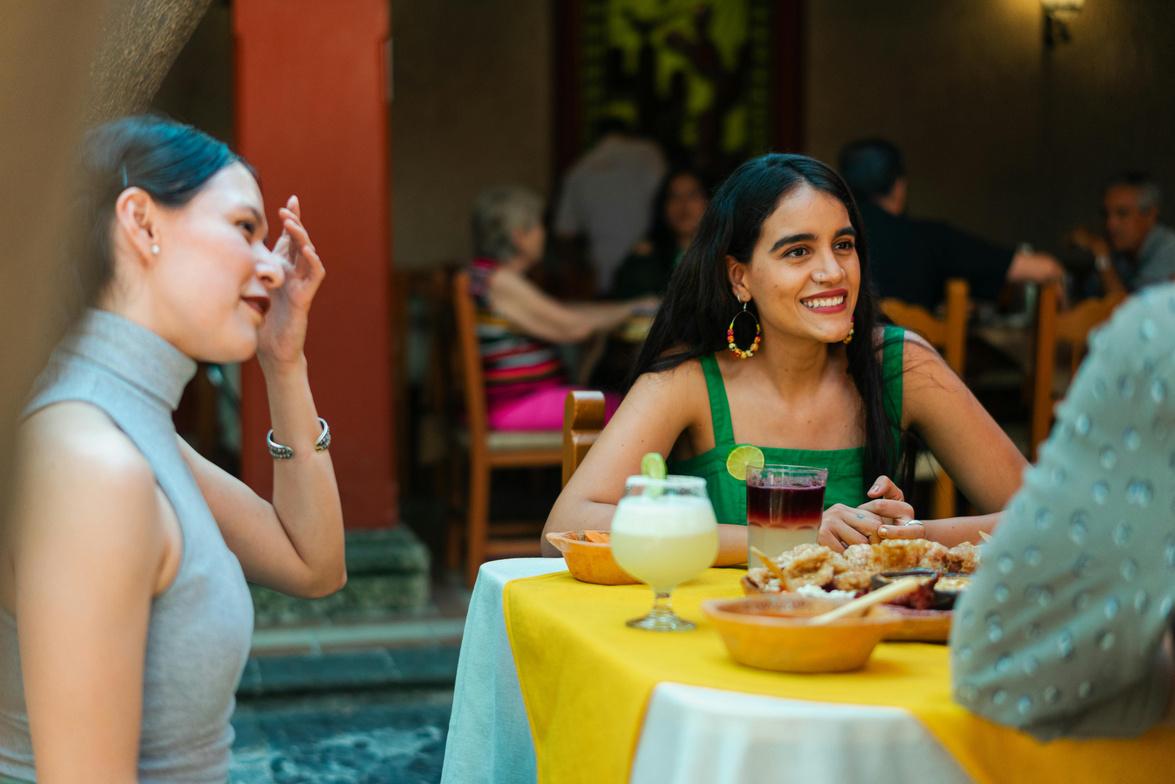 Dana White-Guerrie https:\\theyarnconsoleryllc.com
Dana White-Guerrie https:\\theyarnconsoleryllc.com
In a world dominated by alcohol, what does it mean to be sober-curious?
Why are we in a position where sober-curious is even a thing?
To be sober-curious is exactly what it says on the tin— to be curious about being sober or reducing and changing your relationship with alcohol. This wonderful term is open to anyone with any type of drinking habit. You do not have to be drinking at 7 a.m. to be sobercurious. Let’s explore it a little further.
I am of the age of the ladettes, in the 80’s, pictures of celebrities walking around festivals swigging from bottles of brandy and with fags hanging out of their mouths. God, how I thought they were cool. I wanted to be part of the Primrose Hill gang, with their recreational drugs, celeb-studded parties, and swigging the booze for days on end. How glam. How fabulous.
Until, of course, it wasn’t fabulous.
But even a number of those party girls have now gone sober.
So, what changed?
Did we, as women realise we don’t have to prove ourselves? Did the way we drink change?
I think the way we, as women, want to drink has changed. We do not have to prove we can keep up with the men. We are good enough just as we are. Men though, are also becoming sober-curious and talking openly about their alcohol habits. This is a fantastic revolution, men and women supporting each other in their sober curious mindsets.
Then along came home drinking, where it became cheaper and more acceptable to drink at home and the nightly wine o'clock became the norm.
Somewhere along the way we have realised we do not have to just sit back and accept these social norms. We can question our drinking. It is okay to get curious about alcohol. It does not mean we are an alcoholic, need to go sober, or hate alcohol; it just means we understand we have choices.
Gone are the days when you were either an alcoholic or not.
You can be a high-functioning drinker and sit somewhere on the alcohol spectrum.

You can be a high-functioning drinker and sit somewhere on the alcohol spectrum.
We are starting to understand our health more and be more conscious of it. We are becoming aware that alcohol causes cancer, mental health problems, and lots of other diseases. We are not blind to its charm anymore.
We are openly talking about the benefits of going sober. And we take pride in this. It is no longer a sense of embarrassment and shame. It is to be celebrated and to feel proud of.
I also do not think our children are drinking as much as in previous years, and there is growing evidence to support this. My 18-year-old and her friend don’t go out to get smashed. They have a few drinks sometimes, but not in the way my friends and I did.
I do wonder if some of it is the changing way we parent. I know I certainly just hid everything from my parents, and we didn’t talk anything through. I talk about everything with my daughters, and I know my friends are the same. I hope this helps the next generation understand that they have choices.
I love that we can talk about being sober-curious openly and without shame. I truly believe that in years to come we will view alcohol like we did cigarettes.
Until that day let us encourage conversations about alcohol and shout and cheer every person who is even the tiniest bit curious about sobriety.
Follow Jo here Instagram @Sober.step
I’m sure everyone can agree that a major contributor to the struggles we face when going sober and also something that often makes people feel like they don’t want to go sober, is the fear of missing out.
Even when I was at The Priory (rehab) as an inpatient for mental health and addiction for the second time, I still had FOMO and was questioning how I’d live my life moving forward.
How am I going to live such a boring life?
There’s no way I’ll ever have fun again. I won't have any friends and I'll be alone forever What do sober people actually do?
Will I end up alone, knitting and doing jigsaws? (Actually, quite like a jigsaw )
I had a major concern that I would be forever ‘boring' after giving up alcohol and I felt like I was going to lose my identity. And what's funny is that people still say to me now, "Mate, how do you do it? Not drinking must be so boring!!!”
But the truth is, being sober isn't boring at all In fact, it's the complete opposite!
It's realising that the sunshine and excitement of life extend far beyond the bottom of a bottle and spending all your free time in pubs and clubs.
It's about experiencing true, deep connections, genuine laughter, and meaningful moments that aren't clouded by numbing everything through throwing back a dangerous amount of poison (which was the case with me).
So what are we actually missing out on?
If you're a 'normal' person, then yeah, you can argue that drinking has benefits and because you can moderate it's fun and nice to switch off after a stressful week and all that blah, blah
But I'm not 'normal' and I can't moderate and I took myself to the pits of hell through drinking on numerous occasions So for me personally, what am I missing out on?
Isolation? The loss of all my mates, family and girlfriend? Not having any kind of career, financial devastation and living under a bridge like a troll?
Fear, anxiety and all those panic attacks?
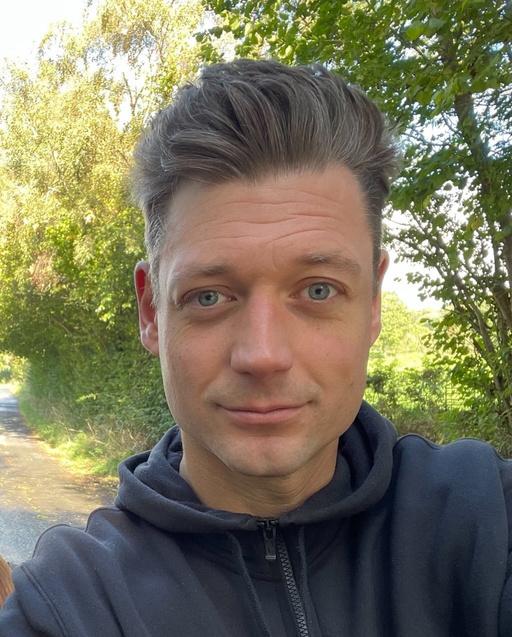
No thanks!
But even if you're not like me and didn’t take things to such an extreme, what are you missing out on?
Going out to the same bars and the same places, spending stupid amounts of money on acting like an idiot, annoying everyone around you, saying or doing things you wouldn't usually do, and then spending the whole of Sunday wanting to hide in bed and not see or speak to anyone?
I’d always feel incredible shame, guilt and regret and say.. “I'm never drinking again!" Then repeat it all over again the following weekend.
Has anyone ever woken up on a Sunday, turned over and said, "Oh, how I love being hungover, I feel amazing & it's so nice how my head's killing me and it feels like I have sandpaper in my mouth!"
No, they really haven't
So for me personally, it's now actually the complete opposite
When I think about drinking again, I get FOMO But the fear of missing out on everything I’ve now found from going sober and how I've opened up a world of benefits that I know I can’t ever afford to lose
Mental clarity and the opportunity to work on my mental health instead of making it worse.
Improved physical health, confidence, deeper connections, discovering new hobbies and interests, experiencing life's moments authentically
Waking up with a clear head, pursuing passions and still being able to go out to pubs but I just do it sober I'm actually having a better time now that I'm my true self and not some crazy, out-of-control, nightmare version on a mission of self-destruction
Because being sober really isn't about being dull; it's about living life to the full, realising your true potential, having purpose, clarity, and genuine joy and embracing this one life we get and making the most of it
If you're still struggling with FOMO and feeling like you’re missing out (like I did for so long), trust me it does get easier. Write down all the things you’re worried about missing out on and then do the same but for everything you would miss out on if you started drinking again like before.
I guarantee the one list overpowers the first immensely So to end, if sobriety means I’m boring now and by being happy, content, full of positivity and excitement for the future makes me a real bore, then I’m happy to be ‘boring’.
I embrace the ‘sober boredom’ and will stand and shout from the rooftops, “I, my friends, am the most ‘boring’ person you could ever meet!”
Embrace being ‘boring’!
Luke Bayliss
Follow Luke's journey on Instagram - llukebayliss
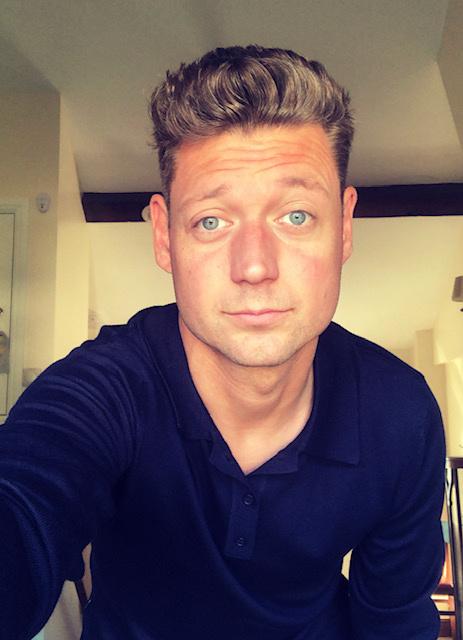
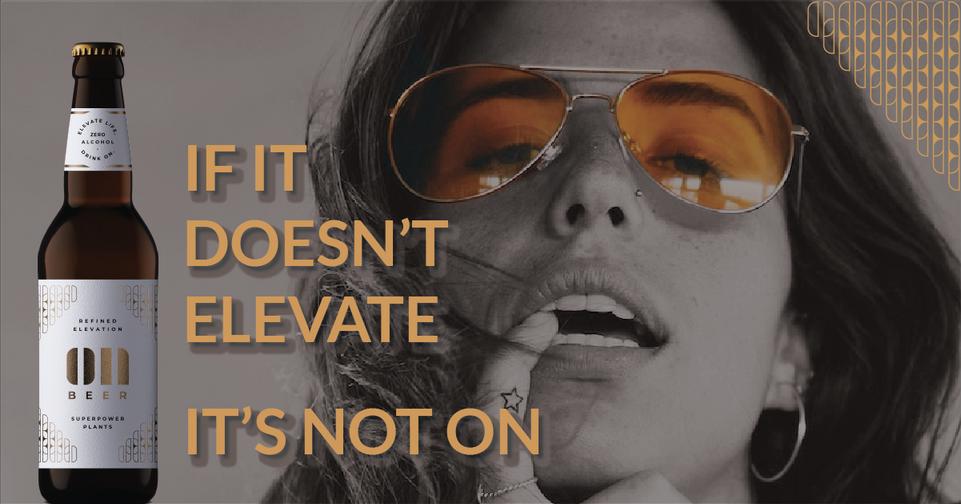
When I was young, I couldn’t read a map very well. At sixteen, I didn’t know where I was going when I was handed that first beer. Hard liquor added speed to the desired effect on the journey, and now the route appeared jagged and blurry. Alcohol of any kind had become the vehicle that took me through an ill-defined, murky life of neglect, hardship, and survival. It was a road trip that lasted fifty years. It was a journey that ended abruptly, luckily without crashing.
In the spring of my senior year of high school, at age eighteen, the state that I lived in changed the legal drinking age to 18. Well, the ability to go sit in a bar any night of the week and order whatever I wanted was heaven to someone without life experience and guidance. But it sucked up a lot of time, money, and ambition. Which is exactly what it does to anyone abusing alcohol at any age!
What I felt
This experience paved the road that I travelled for many, many years. It was living with little energy or ambition; it was not a life. What I felt all those years was, as you would suspect, mostly nothing. Numbness.
In the day-to-day throws of what I can now identify as alcohol use disorder (AUD), the focus is given over to managing hangovers and burying the shame and embarrassment of regretful actions. As I got older and tired of the work of dealing with serious drinking, I started to notice the freedom I saw in others who didn’t drink. Life looked easier for them. But by then, the embedded habit of daily drinking, binge drinking, and drinking as a base for any activity had its hold on me. What did I do? I denied the fact that my drinking was out of control and unstoppable, like a vehicle that had burned out.
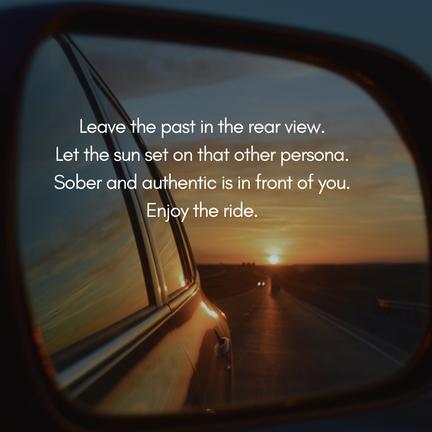
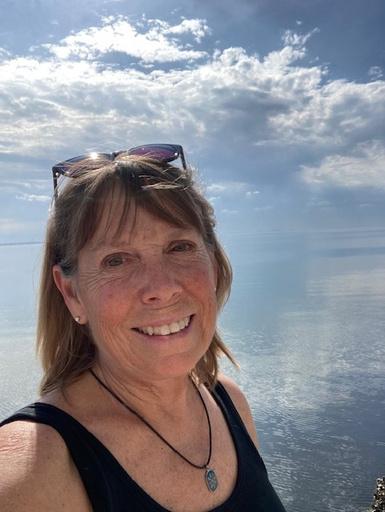
During the pandemic, my drinking went from bad to worse. This was now a consuming habit and addiction that wasn’t the least bit social or fun. I finally surrendered to the fact that drinking was seriously impacting my life mentally, physically, and emotionally. I had to make a choice for myself, and I chose to regain control of my life and build a life with quality and authenticity.
I also surrendered to a real plan to change the road I was on.
What I did
I picked a date to stop drinking.
I joined the support groups Tempest and SMART Recovery and read a variety of books about sobriety. I got very busy with productive activities and things that made me happy.
I took great care of myself; I nurtured my mind, body, and soul.
I told everyone that I quit drinking—family, friends, and strangers alike.
What happened
After a week or two, I began to feel a sense of relief and control. There was freedom and pride in this brandnew life as well. In gratitude, these are the feelings I continue to have. I have been able to add peace and joy to my life as well. It was a fork in the road that led me to sobriety and finally to my authentic self.
My journey continues with clarity and bright light.
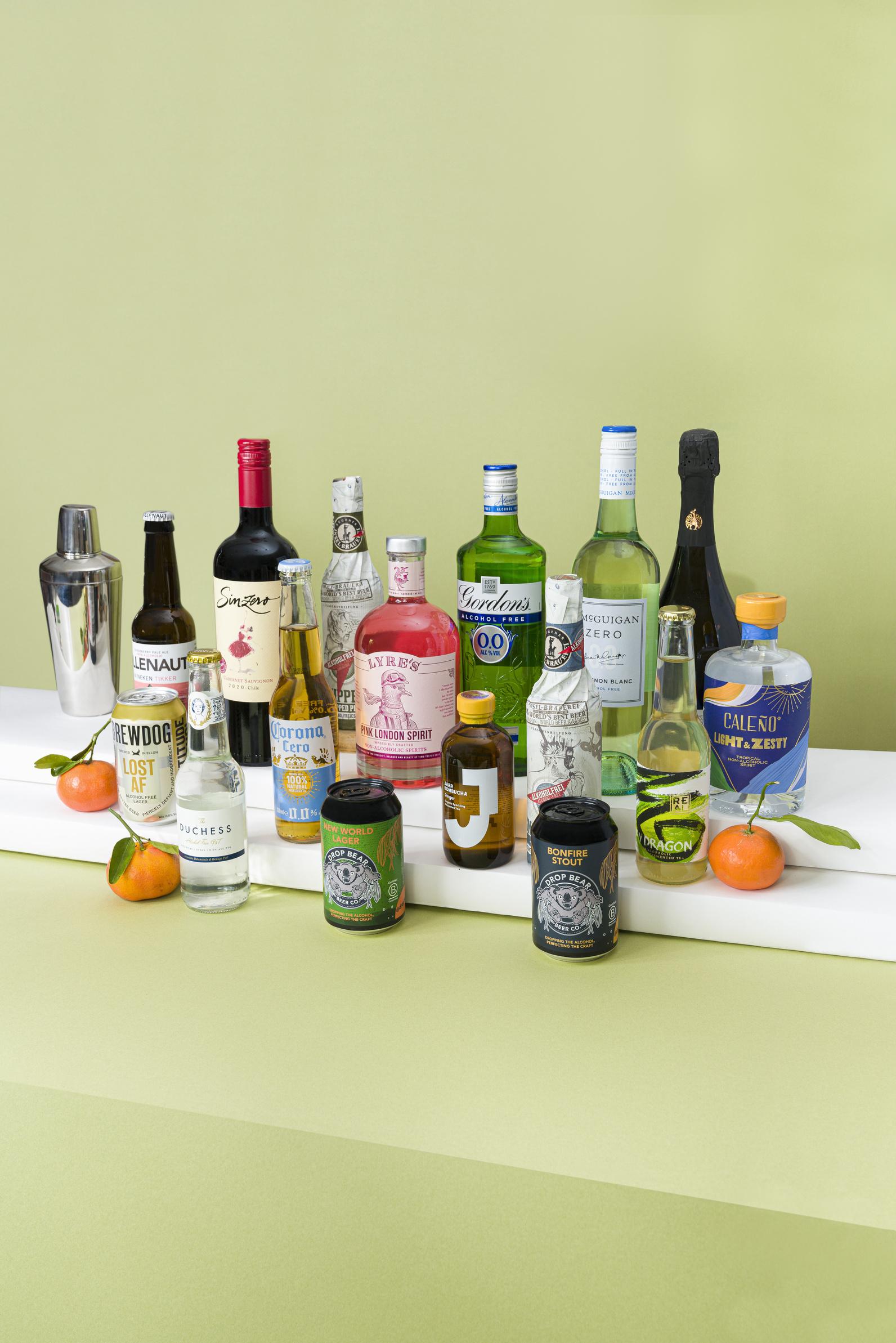

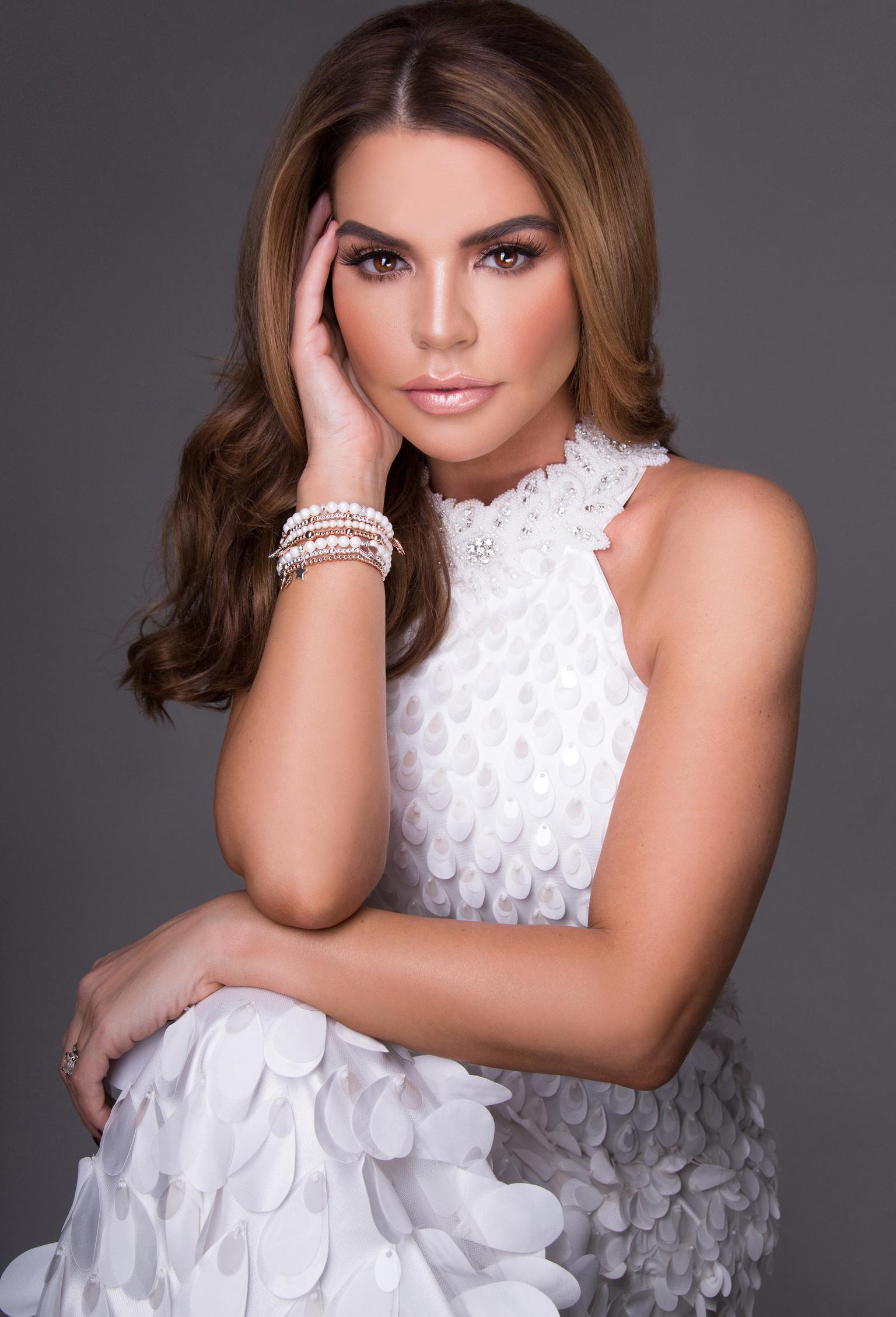
Tanya Bardsley, recognised from "The Real Housewives of Cheshire" since 2015, is a passionate mental health advocate, openly sharing her ADHD journey. Author of "Just a Girl Who Got It All," she offers insights into her life. Tanya's shift from reality star to mental health advocate underscores her dedication to making a positive impact through genuine and open conversations.
Can you share your experience before deciding to get sober and what it was like?
I was just like everyone else, you know, born into a culture where drinking was a norm, especially being part of the Real Housewives of Cheshire. Every event was accompanied by champagne. It started as weekend binge drinking, but it escalated, affecting my self-esteem and mental health. The combination of undiagnosed ADHD and peri-menopause made it a destructive cycle.
Can you elaborate on the impact of your mental health on your decision to get sober?
I struggled with anxiety, and later I discovered it was linked to undiagnosed ADHD. Dealing with ADHD and peri-menopause while consuming alcohol was like adding petrol to the fire. It led to a point where I was contemplating ending my life. It was a breaking point.
Can you share more about your decision to go to rehab and how it influenced your recovery?
Christmas Day last year was a turning point. I realised I needed help and told my husband about my struggles. We found a rehab in Thailand, and fortunately, we had the means to afford it. The four weeks in rehab were like passing a driving test, but the real challenge started when I got back home. It was a complete restart.
How was your reintegration into social life postrehab?
Initially, it was tough. The first six months were the hardest. I had to create a green zone for myself, avoiding places like nightclubs and bars. I attended events for short durations and left early. Loneliness was part of the process, but eventually, it became liberating as I learned to navigate social situations without alcohol.
How did your family and close friends react to your decision to embrace sobriety, and how have those relationships evolved throughout your journey?
Initially, it was a mixed bag. Some were incredibly supportive, while others were sceptical. Over time, as they witnessed the positive changes in my life, they became my biggest cheerleaders. Sobriety has strengthened my bonds with family and friends as we connect on a deeper, more authentic level.
What role has routine played in maintaining your sobriety, and how do you ensure a healthy balance in your daily life?
Routine has been crucial. It provides structure and stability, preventing me from falling back into old habits. I prioritise self-care, incorporating exercise, meditation, and creative activities into my daily routine. This balance helps me stay grounded and focused on my well-being.
You mentioned dealing with social anxiety and ADHD. How do these factors contribute to one's relationship with alcohol, and what strategies have you employed to manage them without relying on alcohol?
Social anxiety and ADHD can create a perfect storm for relying on alcohol as a coping mechanism. I've learned that acknowledging these challenges is the first step. Meditation and mindfulness practices have been gamechangers. They help me manage anxiety and channel my energy positively, eliminating the need for alcohol to self-medicate.
Can you tell us about your involvement in coaching and your current campaign?
Absolutely. I'm doing coaching and appearing on Housewives again. My main focus right now is a campaign for creating 'Cobies' – safe spaces for people with neurodiverse conditions like ADHD and autism. It's about making public spaces more accessible and comfortable for those who might get overwhelmed in certain environments.
Lastly, for someone considering a break from alcohol or embarking on a similar journey, what advice would you give?
I'd recommend exploring options like rehab and joining support groups like AA. Connecting with the sober community is crucial. Take it one day at a time, be kind to yourself, and remember it's okay to ask for help. And most importantly, recovery is a personal journey; don't rush it.
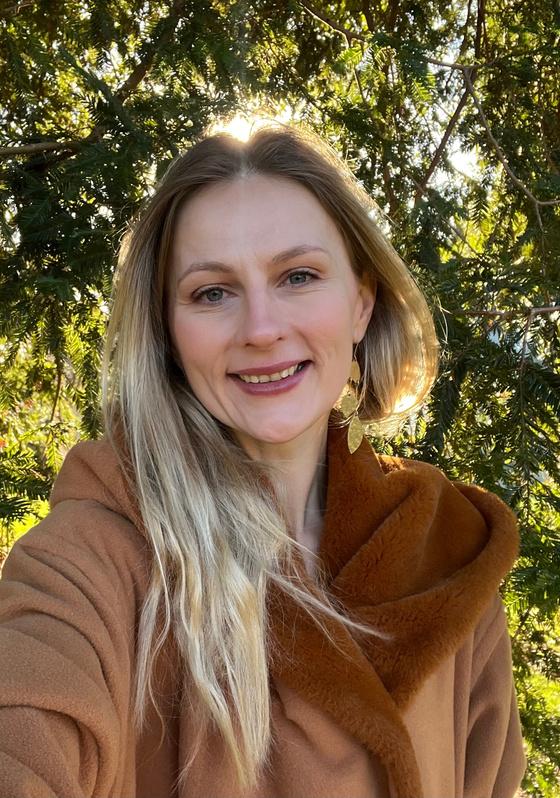
It is universally accepted that the promised ‘quick fix’ of alcohol to dull the edges of our pain often comes with a long-term detriment to our mental wellbeing, whether we are consciously aware of it or not. Consequently, by removing alcohol, many people experience a noticeable improvement in their mental health, be it a reduction in anxiety symptoms, an improved mood, or the ability to better manage stressful situations.
Navigating my own sobriety presented both revelations and challenges. Initially, it felt like things had become harder with my mental health. Predictably, I began experiencing the full range of my emotions, but less unexpectedly, issues I thought I’d worked through began to surface. There was also a lot of soulsearching, which created dissonance in my life that was tricky to navigate at times.
In hindsight, I recognise this process was a catalyst for my personal growth beyond anything I could have envisaged. At the time, though, it felt like a betrayal that being sober didn’t miraculously make all my difficulties go away.
I now understand this is a fairly common phenomenon and have spoken to many people with similar experiences where removing alcohol has brought up past traumas, created difficult dynamics in their relationships, or they just feel overwhelmed with emotions or life stressors and haven’t had the opportunity to learn healthy coping strategies.
For many of us, drinking alcohol has always been a socially acceptable and often-encouraged way to cope with pain. What isn’t immediately obvious, however, is that by dulling our pain, we miss out on understanding what our feelings are trying to communicate and the opportunity to respond more healthily. It is in feeling our feelings that we grow stronger from them.
My personal experience, and that of others, has motivated me to start my own practice, offering
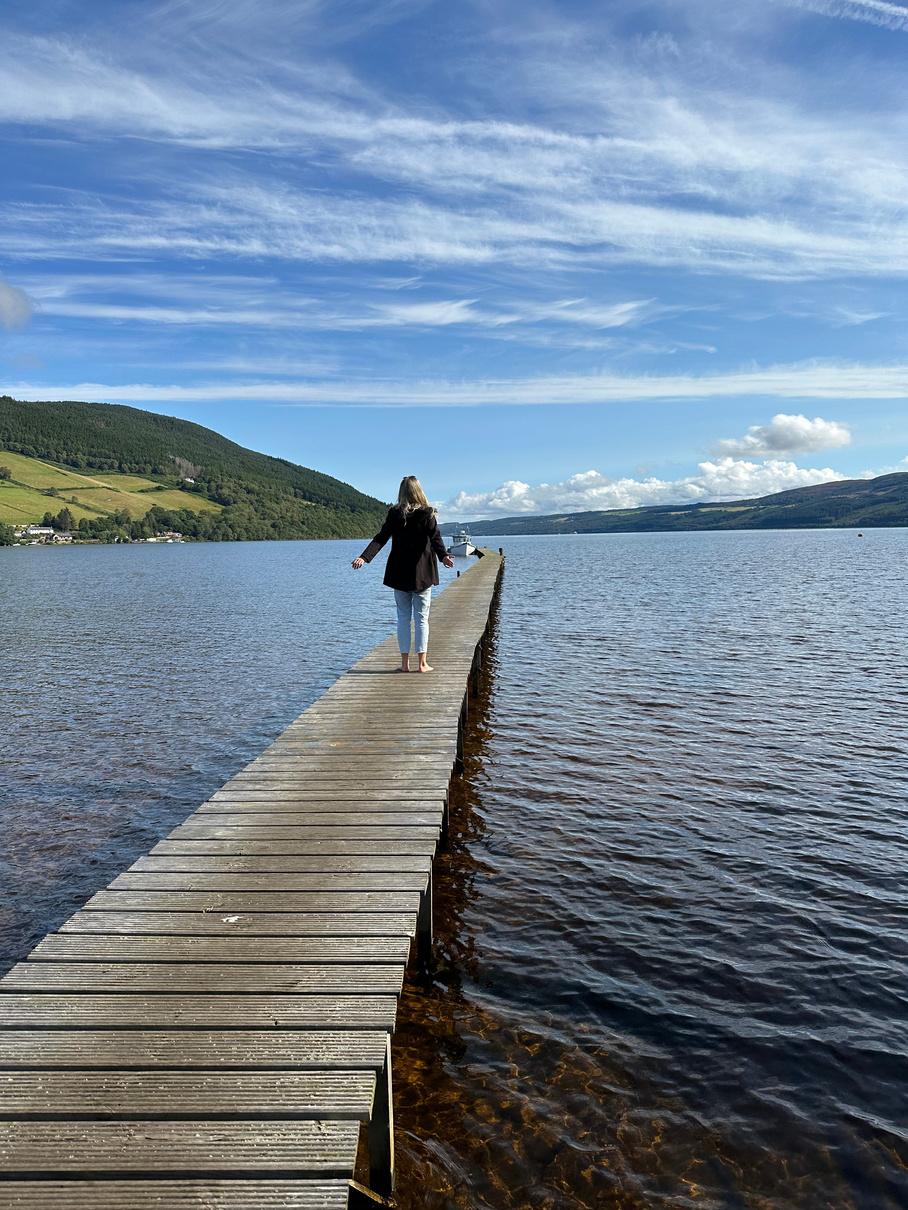
learn to meet your experiences with acceptance and compassion and learn who you truly are and what you need. In time, you learn to embrace change and begin navigating life from a place of authenticity and selftrust with new knowledge and resources.
Maria is a mental health nurse with 20 years of experience and an accredited psychotherapeutic counsellor with the National Counselling and Psychotherapeutic Society.
For more information or to get in touch, e-mail info@mgintegrativecounselling.co.uk or visit www.mgintegrativecounselling.co.uk
“Why don’t you just have a couple?” “Just come for one drink." Those are the words that have been uttered to me recently when I have told friends and family that I just cannot drink anymore. For years, I have been the life and soul of the party. The person you could count on for a wild night out. So, me saying “I’m not drinking” has been met with shock and a lot of questions, but for me, “just a couple” isn’t an option; I have no stop button.
Not so long ago, I was diagnosed with ADHD (combined type), which means I am both hyperactive and inattentive. For me, ADHD and alcohol are just not compatible. This isn’t to say this is the same for everyone, but for me, the last 16 years of my life have been plagued with questionable decisions, which at times have put my health in danger. When I drink, I can’t stop because I am always chasing that quick dopamine fix that my brain just cannot produce enough of.
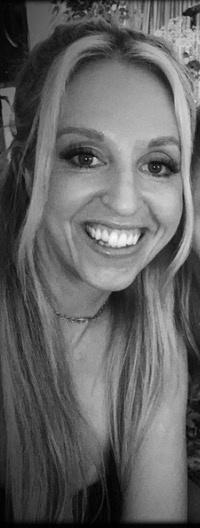
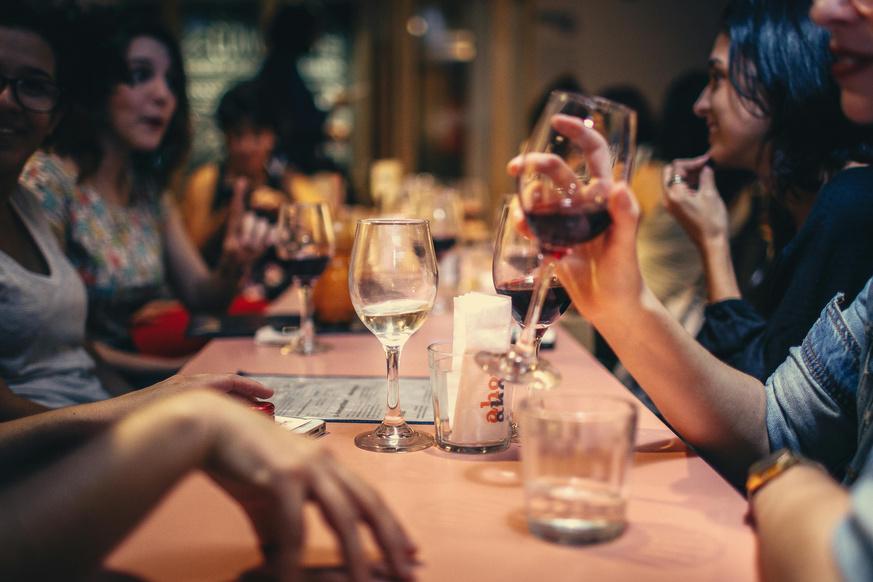
During my university years, I went out at least five times a week. To say I got carried away was an understatement. At age 21, I was hospitalised for a week as I drank myself into oblivion and eroded part of my stomach lining from my constant partying. I was forced to stop drinking for a year, or the doctors told me that I could die. You would think this would have been the end of my drinking career, but sadly, no.
Alcohol seriously harmed my financial, physical and mental health. Following a bout of drinking, I always found coping with day-to-day life overwhelming. I stopped drinking four months ago as my diagnosis brought about a lot of feelings that I was struggling to process and I needed a clear head.
Without alcohol, my ADHD is more manageable, and I can cope with the challenges that life throws at me more easily. I don’t regret my younger years but I wish I had known sooner that I had ADHD as there are a lot of times where alcohol intensified my symptoms of impulsivity and lack of decision making and my life spiralled out of control.
I am now focusing on all of the things that I have gained from going alcohol-free, rather than what I have lost. The future feels bright.
Laura DavisHow did the idea for an alcohol-free festival come about? Whose brainchild was it?
Well, it was actually my brainchild. After a few years of hosting boat parties, I felt the need for something different. We wanted to create an annual event that brings the community together in a unique way, celebrating life without the need for alcohol.
Is this the first of its kind, or are there other alcohol-free festivals out there?
While there are events like Russell Brand's, ours is specifically crafted to be more focused on the alcoholfree aspect. We want people to unite, have fun, and enjoy themselves without alcohol taking centre stage.
Can you share some highlights or activities attendees can look forward to?
Absolutely! We've curated a diverse lineup – from yoga and breath sessions to meditation and inspiring talks. There's even a DJ set for those who want to dance the day away. We aim to provide great value for attendees with a variety of activities included in the ticket.
Is it a family-friendly event?
We've dedicated a whole field for kids with activities like football, bounce castles, and face painting. Families are more than welcome, and kids get in for free. It's a space where everyone can enjoy the festival together.
How many tickets will be going on sale?
We've set a limit of 350 spaces. We want to create an intimate and engaging atmosphere for everyone.
Are you working with any drink sponsors?
We're currently in talks with potential sponsors, and we'll also be selling drinks at the festival. Keeping it simple and rustic to ensure affordability and accessibility for everyone.
What about live music? Can attendees expect any performances?
We're sticking with a DJ this time.
With activities like yoga and breathwork – do attendees need to sign up in advance?
No sign-ups required! We'll have multiple sessions throughout the day, allowing attendees to join in at their convenience. It's all about flexibility and creating a relaxed atmosphere.
What are the event timings, and when can eager festival-goers get their hands on tickets?
We're kicking off at 10 am and wrapping things up around 9 pm – a full day of festivities! As for tickets, they'll be available for purchase on te 1st Match, giving everyone plenty of time to plan for a memorable summer experience.
Ticket - on sale here www.dryyapp.com
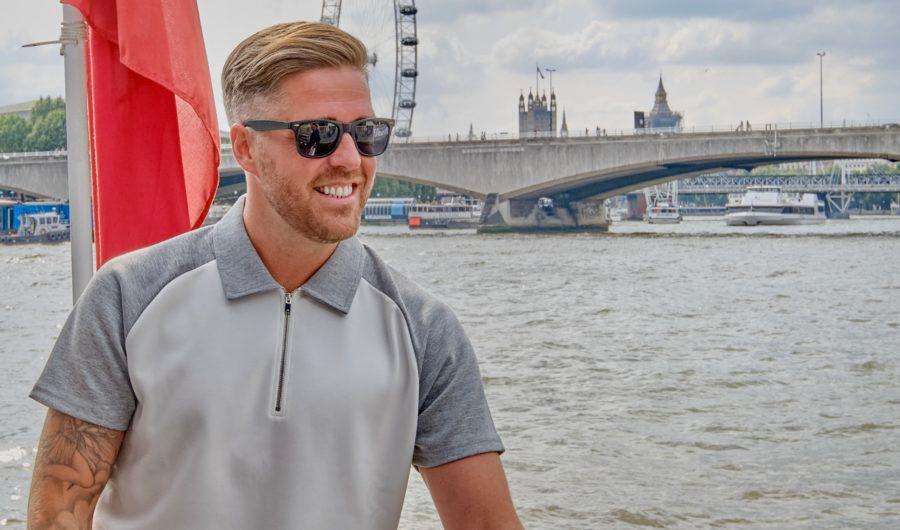
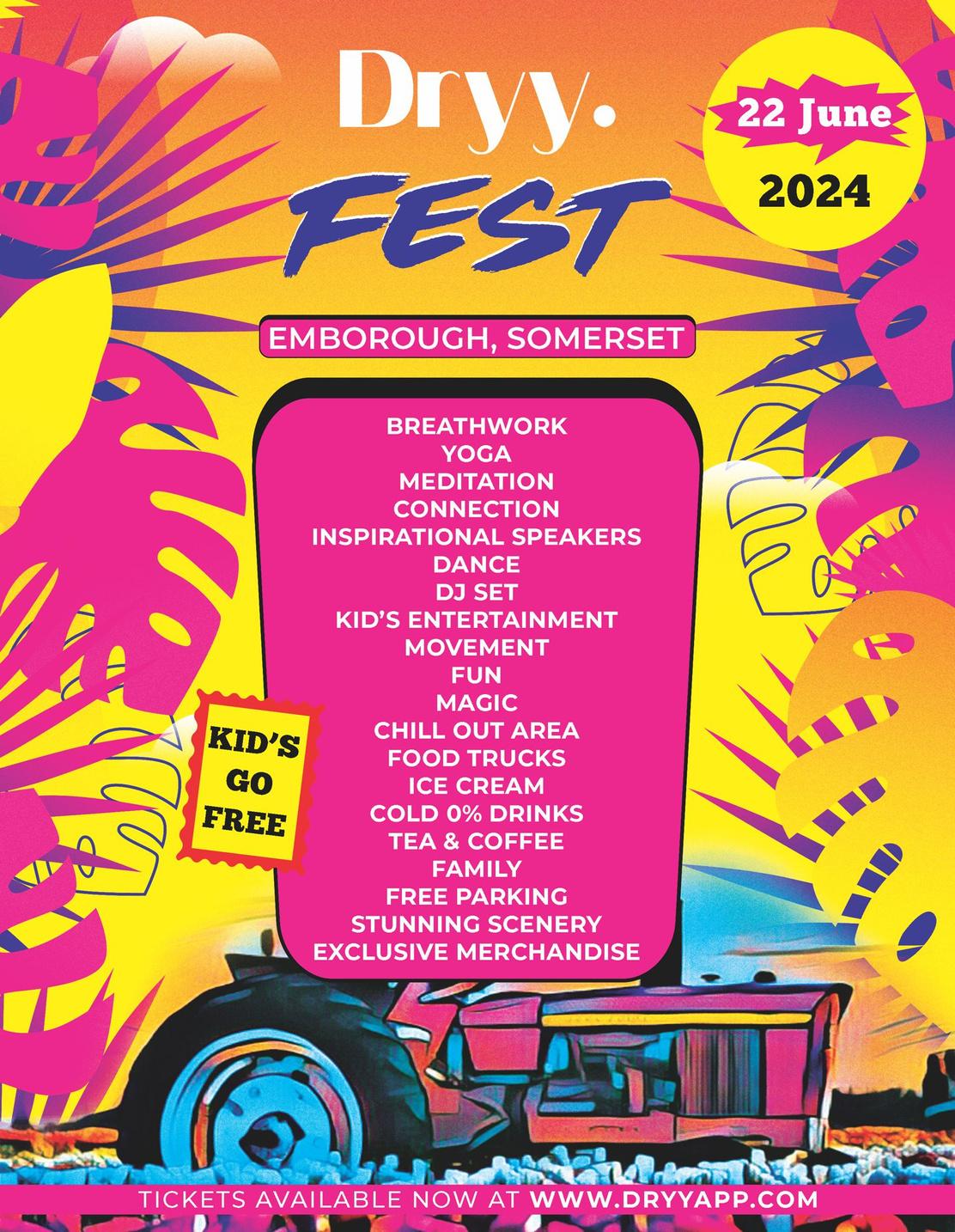
I grew up in a pub in a small village in Scotland in the 1980s. My parents drank, and everyone around me was drinking. It was everywhere. It was fun and sociable. The only way you could enjoy yourself.
Growing up, it was normal to drink. To start young. Expected even.
Fast forward to when I was in my 20s and 30s. I was living the PR lifestyle in London and was a sociable big drinker, pretty much drinking most nights. Believing I was living my best life.
For decades, I ignored myself. I blamed lots of other things if I wasn’t feeling great. I didn’t listen to my body or my mind. Alcohol was too big a player in my life. It is ingrained in every single part of it. Giving it up was not even an option for me.
My hangovers could be hellish. I sometimes hated myself. My friends and I would even laugh about it. It would be normalised. Everyone has hangovers, don’t they? “Don’t worry about it," they said, “you’ll be fine tomorrow.”.
Why did I ignore my own well-being over societal drinking ‘norms’ for over 3 decades?
Ten years ago, I moved home to Scotland with my husband. As a new mum of twins, the hangovers seemed WAY worse with much less to drink. I was going out less. I wasn’t a daily drinker; I drank at the weekends. But, ‘one’ glass to ‘wind down’ on a Friday would turn into a bottle (or two).
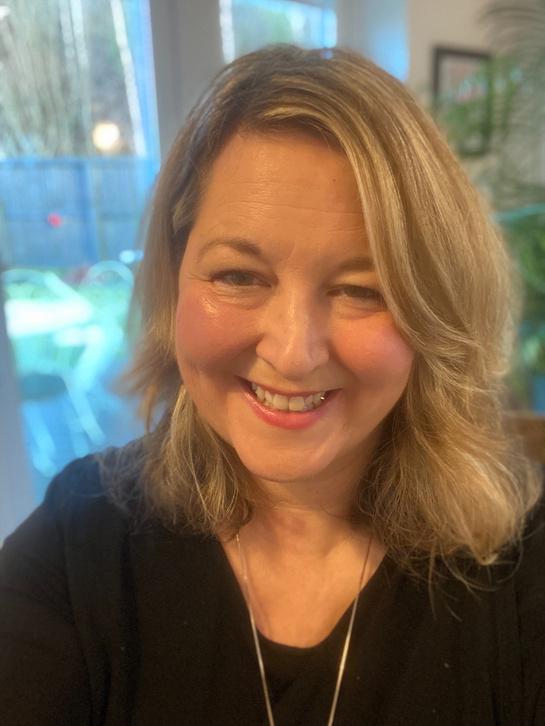
I tried to ‘control’ and ‘moderate’ and it was exhausting. I promised myself to have ‘just the one’ tonight, then breaking my own promise. Feeling regret and shame the next day. Rinse and repeat.
Kids and hangovers just don’t work. I felt I was missing out on things, I wasn’t feeling great, my energy had gone, my IBS was unbearable, my temper short. It wasn’t fair on them or me.
It was only when a good friend of mine did Sober October and after a couple of months I asked her how she was doing. I’d genuinely never considered stopping, hadn’t heard of the term sober-curious or the sober-curious movement. This conversation was a real lightbulb moment. It changed my life.
The phrase “The fear of doing the thing is usually worse than doing the thing” is spot on.
So, I stopped on January 1, 2023 for Dry January and never started again. Kicking alcohol out of my life did feel scary. But, oh I’m so glad I did. For me. For my family.
I started the Instagram account HelloSoberMe after 6 months of lurking and being supported by this wonderful sober community. Being inspired daily by others, I actually felt compelled to not only share my story but hopefully support and help people who like me, want to review their relationship with alcohol.
My hope for the future is that I can be a sober champion for my kids by simply normalising not drinking alcohol. Showing them that they have a choice and breaking that generational drinking chain. I want to live a life with no more wasted days.
I believe that the key is to make not drinking your norm. Be genuinely happier living well without alcohol even crossing your mind.
Am I there yet? Well, some days I can say yes. Other days it’s harder. But, what I do absolutely feel is total FREEDOM from the constant inner battles with myself. I trust and like myself more. I am energised, less angry. Grateful.
I want to keep this better lifestyle going. For me, for my family.
Alisa Herd - hellosoberme
I’d love to help you cut alcohol down/out of your beautiful life.
linktr.ee/hellosoberme
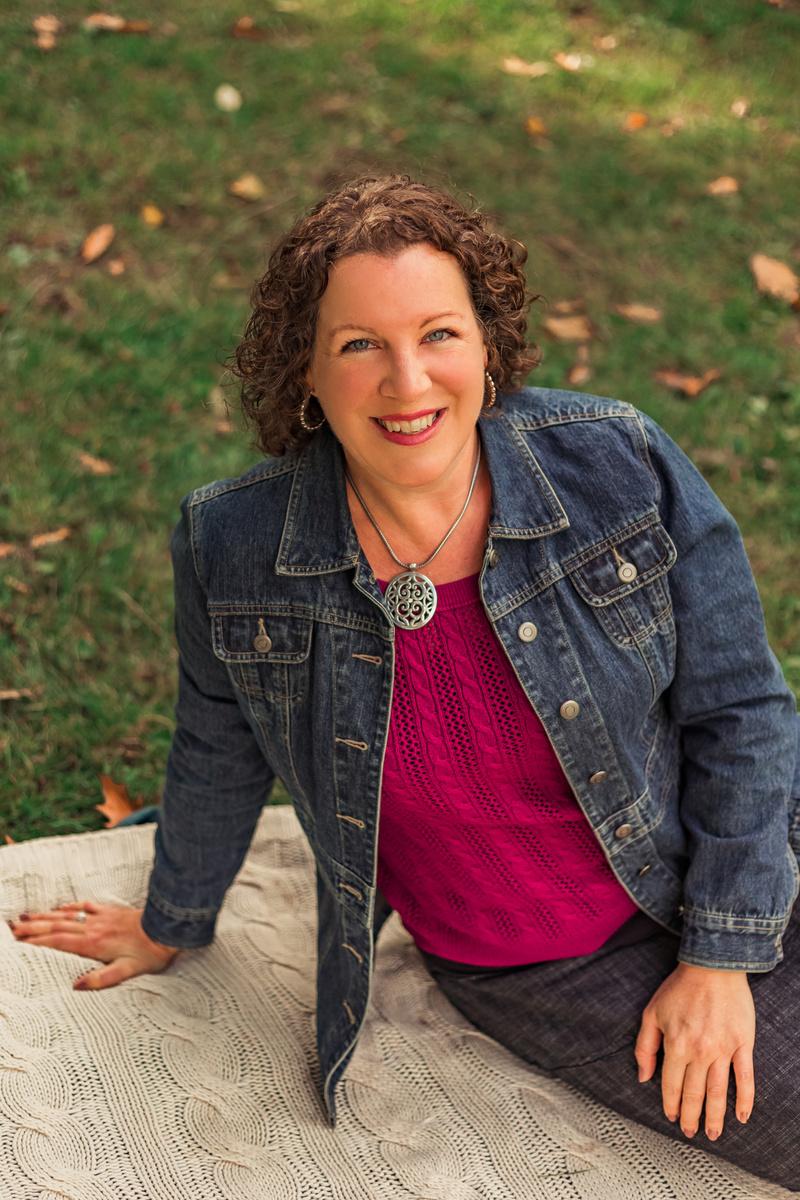 By Janelle French
By Janelle French
In October 2022, I was 41 years old and my skin was at a new low, with acne cropping up around my mouth and dryness that made it painful to speak. I met up with a friend at a harvest event, my makeup thickly caked on to hide the breakout, and jokingly said to her, “Well, it’s my own fault for subsisting primarily on caffeine and alcohol.” The following week, after a few rum-andcokes, I snapped at my family over dinner for no reason. I heard, in that moment, the Angry Mom—the mom I didn’t want to be. I knew then that I was done. I poured the rest of the bottle of rum down the sink that same night and decided that our upcoming vacation to Maine would be the perfect opportunity to start my sober journey.
I wouldn’t have considered myself an addict at that point and thankfully had avoided the heartbreaking lows that I’d later read about in online sobriety groups. My friends thought of me as a social drinker, not knowing that I’d pour myself several glasses of wine most nights of the week simply to shut down my racing brain for a while.
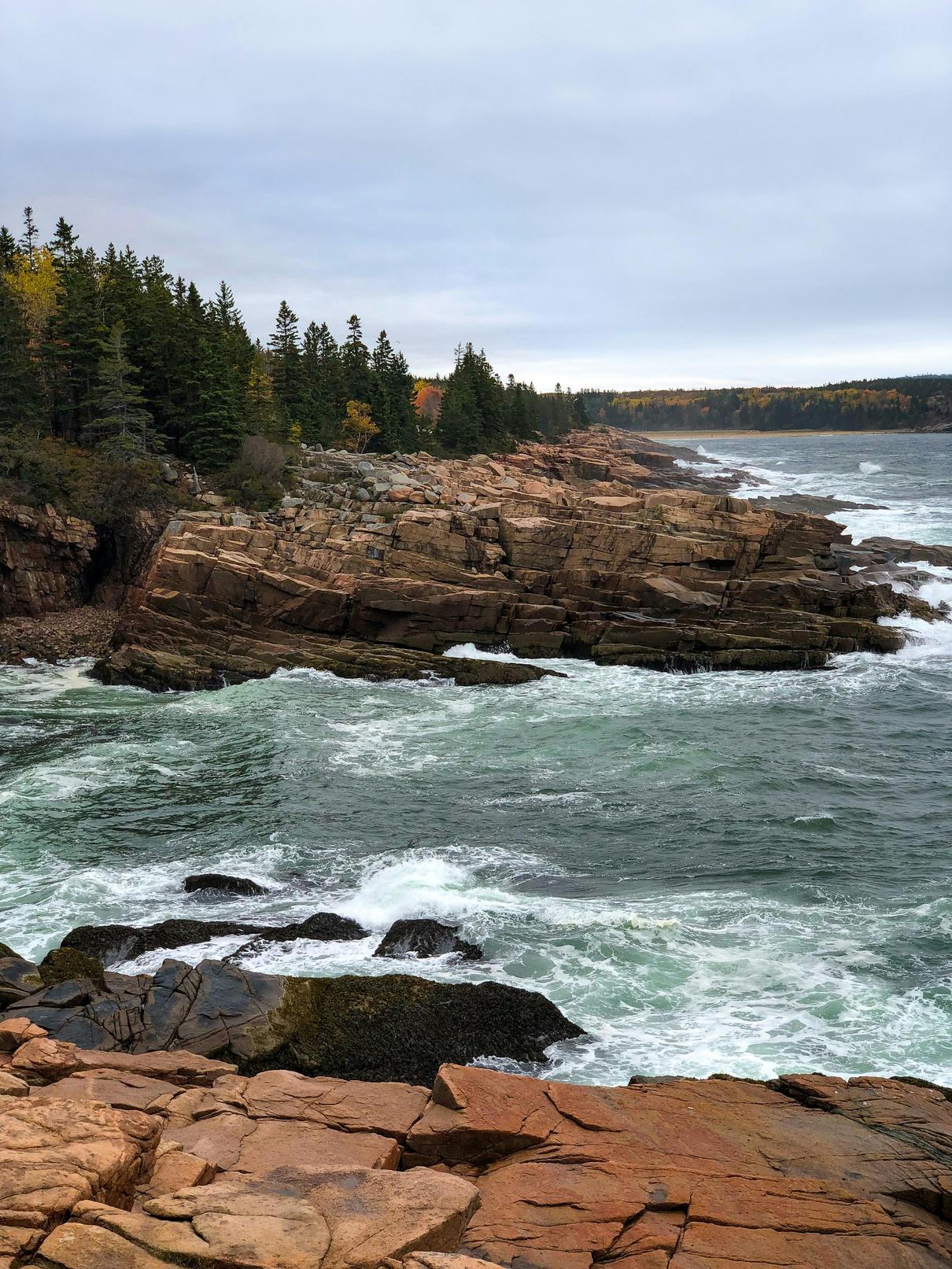
Before our trip to Maine, I purchased non-alcoholic beer and caffeine-free beverages to enjoy near the campfire, borrowed the book Quit Like a Woman by Holly Whitaker (a fantastic read that I still recommend to others), and packed a journal, yoga mat, and ear buds to listen to podcasts and meditations. What I didn’t pack was my medical marijuana that I used for intermittent back pain. I brought along my anti-anxiety medications but found that without the other toxins in my system, I no longer needed them. I eventually told my immediate family and a few close friends what I was attempting and was met with—mostly—overwhelming support. Those who didn’t understand were quickly pushed to my periphery while I pursued what I knew was the best choice for me.
Since that first trip, I’ve logged 461 days free from alcohol, caffeine, anti-anxiety medications, and medical marijuana. I’ve read countless books on sobriety, connected with others on similar paths, and have publicly posted about my own progress in case my sober-curious friends need to talk to someone. My skin is clear, I laugh more, I’m more carefree and better focused, and my children now have a Happy Mom. I could never have foreseen how beautiful my life would become by removing these poisons from my body and mind. My journey continues and I commit to my sobriety every day because I know that it’s worth it not only for myself but for my family as well.
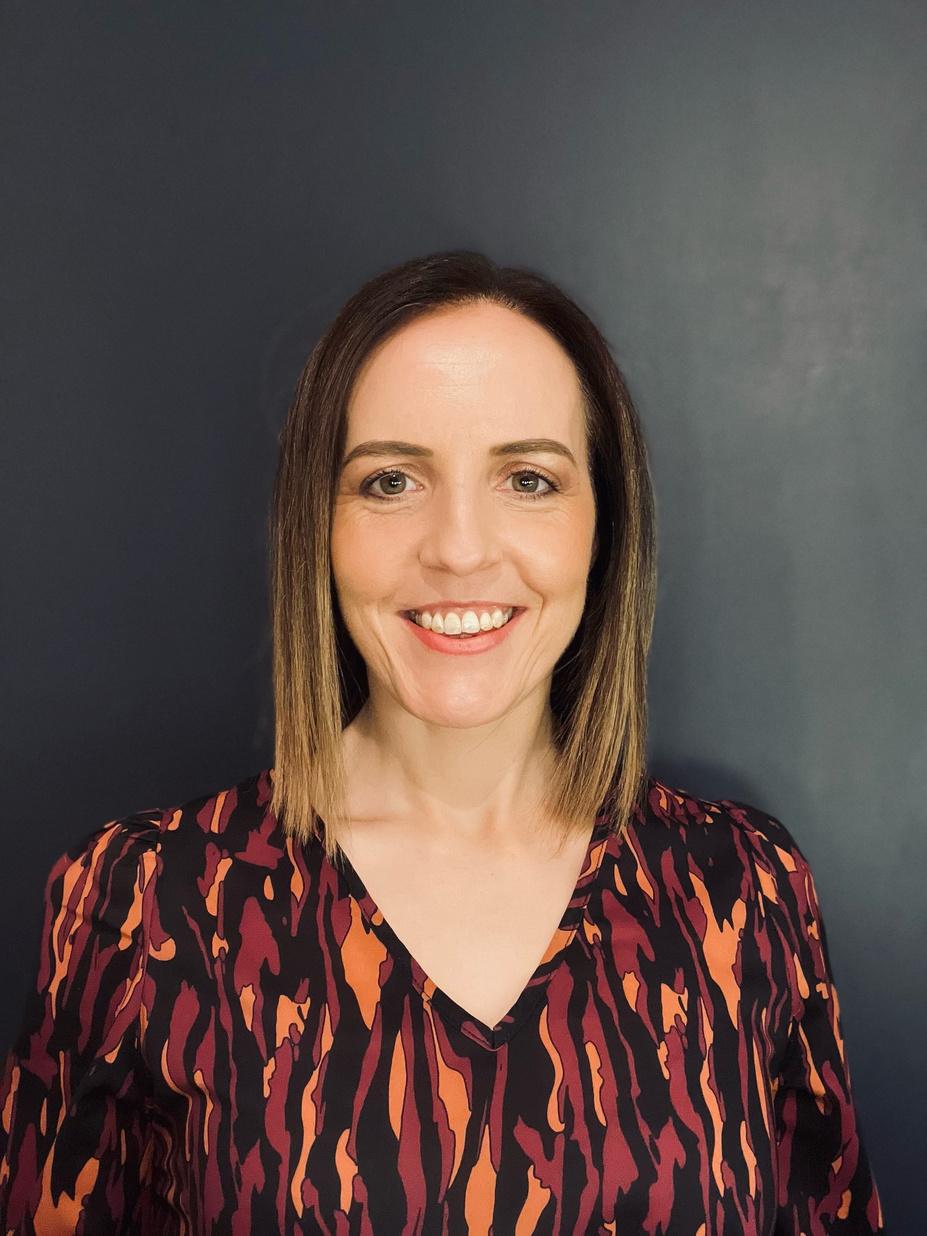
Sobriety is a state of being; it can be defined as the physical act of abstaining from alcohol. Sobriety is also a state of mind, and when it comes to getting and staying successfully sober, our mindset is arguably the most powerful driving force. There are of course other contributing factors, such as support from loved ones, recovery programs, lifestyle changes and so on, which collectively can aid us in living a life without alcohol. ‘Mind over matter’ is a term used in so many scenarios where we as human beings face and overcome challenging situations, often as a result of being strongwilled and having self-belief.
If you want to embark on a journey of sobriety, selfbelief is imperative. If you have made attempts in the past to abstain from alcohol for a certain period of time but then ‘fell off the wagon’, it does not mean that you are a failure. It can for many people take several attempts before they get to that place where they refer to themselves as ‘being sober’. This is when they truly believe that they are not going to drink alcohol, they do not need to or want to drink alcohol. This doesn’t happen overnight, and managing your mindset and working on your self-belief takes time, effort and persistence.
Every single day, you must tell yourself—or even better, say it out loud while looking in the mirror—"I can do this; I will not drink alcohol today. I don’t need to drink alcohol." At the end of each day that passes, you then tell yourself, ‘I did it, I didn’t drink alcohol today’. This daily practice of positive self-talk can gradually over time build up self-confidence and self-belief, which in turn, can greatly improve our overall sense of selfworth. Changing the narrative, that inner voice that tells us that we are not good enough, and we will never be strong enough to achieve what we set out to do, is crucial to breaking away from those harmful habits and walking away from the booze.
I am 3.5 years booze-free and can honestly say that the shift in mindset for me in comparison to when I drank is monumental. Even though, from the outside looking in, I was a confident, ambitious and successful person in how I lived my life, there was always a dark cloud hanging over me full of negative thoughts, self-doubt and self-loathing at times, and an overall harshness in how I spoke to myself and evaluated my self-worth.
Mindset, this didn’t happen overnight, and it was a very gradual process, still a work in progress in fact. I put in the work and continue to do so, because I know I owe it to myself and above all else, I know that if I didn’t, I would never have managed to surrender and learn to accept that I cannot drink alcohol.
Mindset is everything, not only in sobriety but in all aspects of life. A healthy body keeps us alive and active, and a healthy mind teaches us how to live and appreciate our bodies for all of the wondrous things they can do for us. You can put provisions in place and set out with the best of intentions when you reach a decision to ‘go sober’, but unless you actively work on your why, ‘why do I drink’, ‘why do I need to stop’, you very well may find it difficult to abstain in the long run. There is no ‘one size fits all’ of course. When it comes to the type of work needed and the level of intensity required when managing your mindset, often advisable to seek professional support. Ultimately, it comes down to you, you have to put in the work, nobody will do it for you, and nobody can instil that sense of self-belief, that feeling of ‘being sober’, this has to come from the inside, from that inner voice I mentioned before, ‘I can do this, I will not drink alcohol, I don’t need to drink alcohol’.
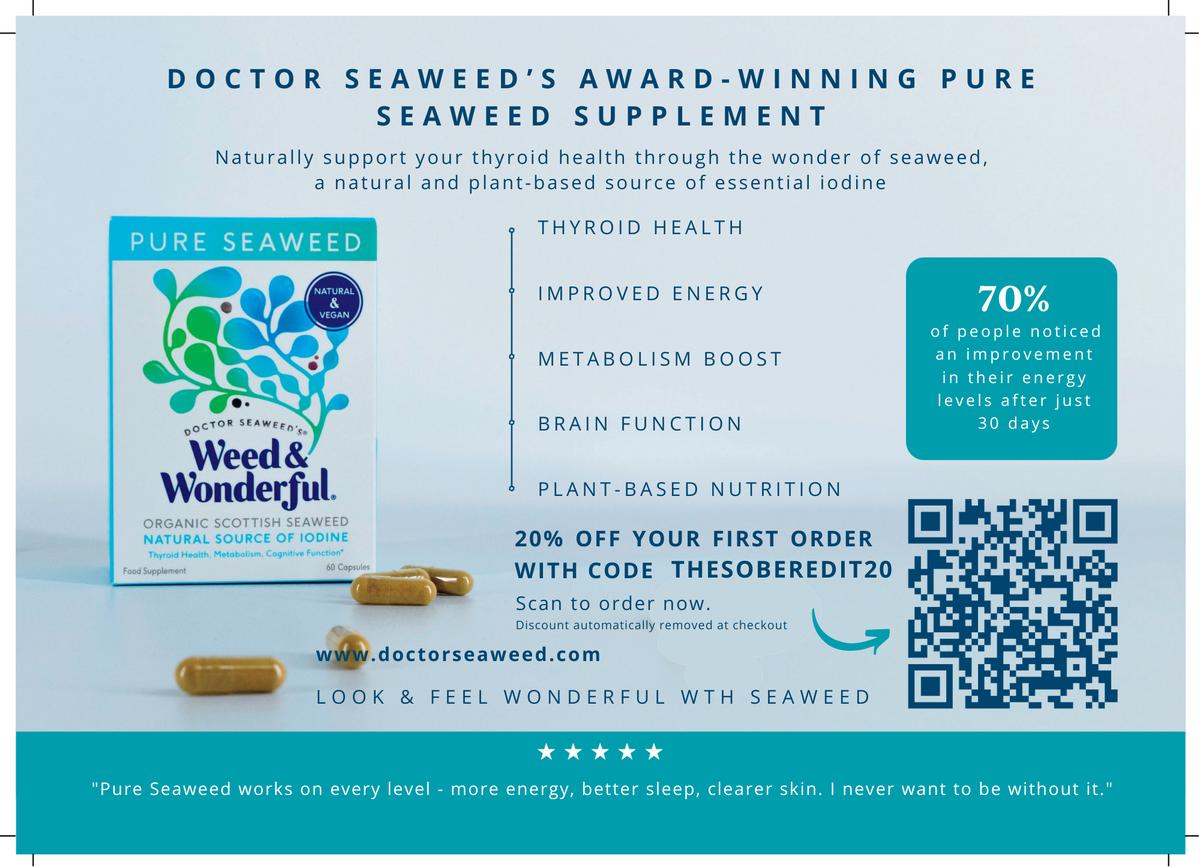

Lorri Haines, CEO of the mental health app 'Shoorah' since its 2023 launch, has been a successful entrepreneur since his teenage years. Alongside his business ventures, Lorri co-stars with his fiancée on ITV's "Ferne McCann: My Family & Me," sharing glimpses of his life. Balancing business acumen with a commitment to mental health advocacy, Lorri's career reflects a unique blend of entrepreneurship and entertainment.
Can you share some insights into your upbringing and family background?
Certainly. I grew up in an environment where my parents struggled with addiction. It was a challenging upbringing that significantly impacted my perspective on various aspects of life, including how I approach the topic of sobriety.
How do you think your family's experiences with addiction have influenced your views on alcohol and sobriety?
The experiences within my family have been profound. Witnessing the challenges my parents faced with addiction has made me more cautious and aware of the potential consequences of alcohol use. It has been a significant factor in shaping my decision to embrace sobriety.
In what ways has your upbringing played a role in your commitment to sobriety, and how has it shaped your personal journey?
My upbringing has played a crucial role in my commitment to sobriety. It has served as a motivating factor to break any potential cycle of addiction and make healthier choices. Understanding the impact it had on my family has fueled my determination to approach alcohol with caution and responsibility.
Can you share with us how long you've been sober?
I have been sober for about a month and a half now, I don't even miss the drink right now.
What inspired this decision, and how has the journey been for you so far?
The decision to go sober stemmed from a realisation during a wellbeing event. I've had experiences with moderation in the past, but this time, I felt the need for a more significant challenge. The journey has been both introspective and empowering.
How long do you plan to stay sober, and is there a specific goal or milestone you're aiming for during this period?
I've committed to staying sober until the twenty-third of April. It's a goal that I set for myself during a wellbeing event, and I'm looking forward to seeing how far I can go The plan is to celebrate milestones along the way and reassess as I progress on this journey.
How do you envision sobriety becoming a more prominent aspect of your life in the coming months and years?
I see sobriety as a central focus in my life, influencing not only my personal choices but also shaping my professional endeavours. I want to use my experiences to contribute positively to the conversation around mental health and sobriety awareness.
As you continue your journey, are there specific challenges or achievements you anticipate, and how do you plan to navigate them?
I anticipate challenges, especially in social situations or during specific milestones. However, I see each challenge as an opportunity for growth. By staying committed, seeking support, and maintaining a positive mindset, I believe I can navigate these challenges and turn them into achievements.
What are your future goals in terms of sobriety, both personally and professionally?
Personally, my goal is to continue the sobriety journey and reach significant milestones, possibly extending beyond the current commitment. Professionally, I aim to integrate my commitment to sobriety into my work, especially through the mental health app I've founded.
Can you share the inspiration behind creating Shoorah and how it aligns with your personal journey?
The app stems from my passion for mental health and sobriety. I want to create a platform where people can find support, resources, and discussions around these topics. It aligns with my commitment to advocate for sobriety and contribute positively to mental health awareness.
How do you see your personal journey and experiences influencing the content and features of the mental health app?
My personal journey has given me insights into the challenges individuals face when it comes to mental health and sobriety. The app will reflect real experiences, discussions, and tools that have been valuable on my own path. It's about creating a community based on authenticity and understanding.
How do you envision the mental health app making an impact, both for individuals on their journey to sobriety and the broader conversation around mental health?
The app is meant to be a hub for support, understanding, and inspiration. I hope it becomes a safe space where people feel connected and empowered. By fostering discussions and providing resources, the goal is to contribute to a positive shift in how society perceives and approaches mental health and sobriety.
Considering your future goals, both personally and with the app, what milestones or achievements are you aiming for in the coming months?
I'm looking forward to reaching the milestone of six, seven, and eight months of sobriety by the end of summer. For the app, I aim to see it grow into a vibrant community, making a meaningful impact on individuals' lives and contributing to a broader cultural shift towards positive mental health and sobriety awareness.
For those who may be inspired by your journey, what advice would you offer to individuals considering a path towards sobriety or those seeking support for their mental health?
My advice is to take that step, reach out for support, and know that you're not alone. Sobriety and mental health are personal journeys, but there's strength in community and shared experiences. Embrace the process, celebrate the small victories, and focus on the positive changes you're making in your life.
Find out more about Shoorah here
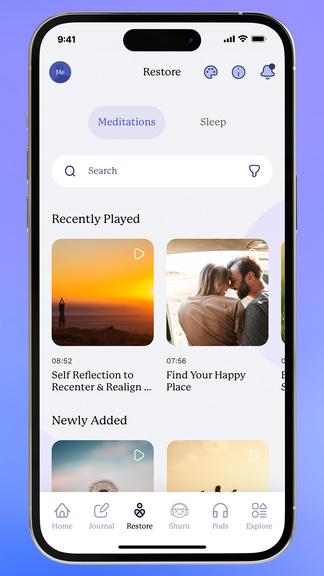
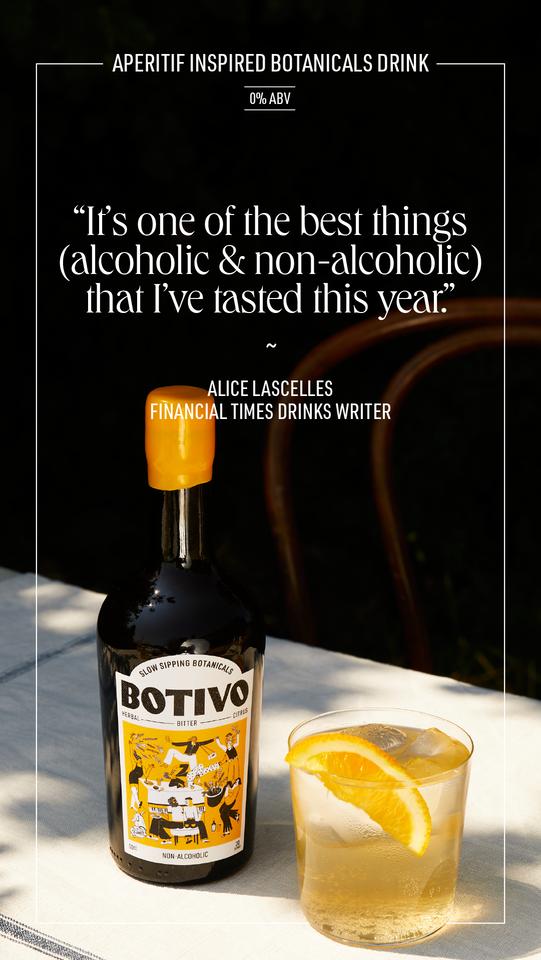
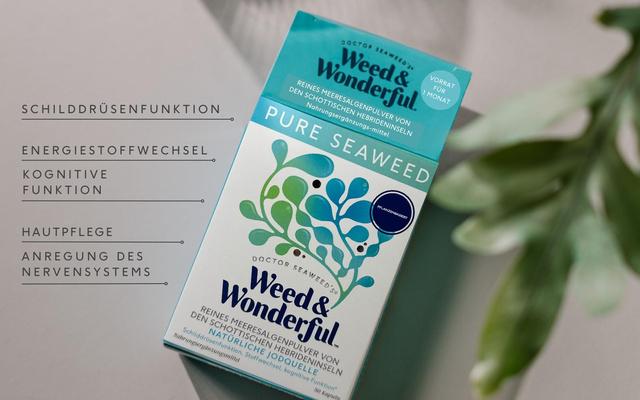
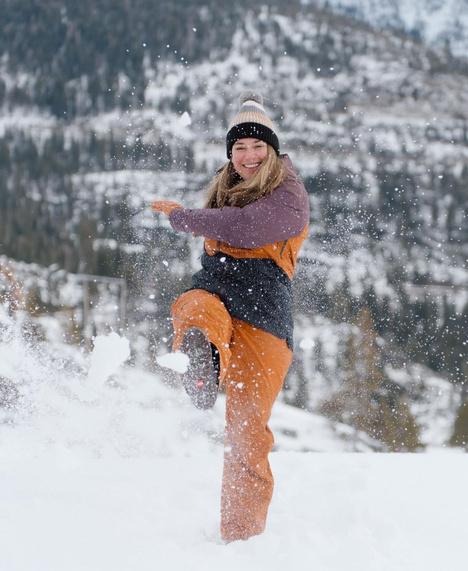
Since embracing sobriety in 2012, I've made it my mission to empower women to experience the joy of solo travel without the influence of alcohol. Through years of exploration, I've gained invaluable insights, and now I'm thrilled to share with you five essential sober travel tips that will transform your alcohol-free travels into unforgettable adventures.
The key to a successful sober trip begins with meticulous planning, in particular the planning around meals. Take control of your dining experiences by either researching restaurant menus in advance or guiding the choice if someone else is making it. Opt for venues with robust non-alcoholic offerings, ensuring you have enticing alternatives to drink. By deciding ahead, you'll eliminate the pressure to succumb to alcohol temptations.
Navigating sobriety during challenging moments is easier when surrounded by a supportive community. If there is a certain time of day that can be triggering, that is an essential time to surround yourself with support.
For me, evenings can be a challenging time of day to navigate. When the sun would go down and happy hour signs would appear, it was a trigger to drink. Now I use evenings as an opportunity for connection. Whether physically present with loved ones or virtually connecting with friends, sharing this vulnerable time can ground you in the present moment. Consider joining night tours, focusing on culinary experiences or history rather than pub crawls, to surround yourself with a community during potentially triggering times.
Stepping outside your comfort zone is inherent in travel, but it's crucial to incorporate comfort where you can. Find solace in familiar rituals, such as sipping your favourite Starbucks drink, practising gratitude or enjoying sparkling water. These simple comforts create a sense of calm, assuring you that everything is going to be okay. Identify your travel comforts and make them a part of your journey.
Give yourself permission to indulge in the delights of your destination. While sobriety limits alcohol-related indulgences, there's a world of culinary experiences awaiting exploration. Delight in desserts, try mocktails, and savour local pastries. Research regional delicacies beforehand to ensure you don't miss out on the diverse flavours your destination has to offer.
Maximise your sober travel experience by optimising daylight hours. Embrace a new perspective on life, discovering adventure and activity from sunrise to sunset. Tailor your days to activities you love, steering clear of nighttime activities centred around drinking. Whether exploring local cuisine, taking city walks, hiking, or basking in the sun, fill your daylight hours with activities that enrich your travel experience.
As you embark on your alcohol-free adventures, remember that sobriety enhances rather than limits your travel experience. By incorporating these five tips, you'll not only navigate the challenges of sober travel but also create memories that last a lifetime.
Empowering women to travel sober + solo linktr.ee/meganarabian
I’m obsessed with Bridgerton. Obviously, I love the Netflix show because of the wit, the spectacle, and the intrigue. But mostly because of the smoking.
I talked about Bridgerton all the time when I helped people get free from cigarettes or vapes. Partly because a lot of people have watched it, but mostly because the smoking is regular as clockwork. It’s almost as if it’s been added at specific points to make you want to light up.
I was excited when the second series came out. But, amazingly, there was less smoking. Which confused me until I discovered that in 2019 the British Medical Journal published an article showing that of the Netflix programmes they studied, 74% included smoking. Unsurprisingly, Netflix copped some criticism for this. They promised to tone down the smoking.
Along came Bridgeton Series 2. They’d taken out some of the smoking—great. But they’d added some drinking – hmm. It got me thinking. Did Netflix swap smoking for drinking?
Actually, it got me more than thinking. I started researching alcohol and Netflix. That’s my idea of science: research you can do while watching TV.
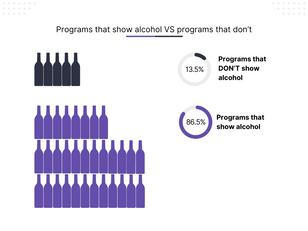
As Netflix is always keen to suggest shows I’d like to watch, it was easy to pick 36 to study. They were all Netflix originals and rated 15 or 18. Once I’d selected the shows, I got to work (I use the word work loosely).
86.5% of the shows contained alcohol.
That might not surprise you; as you know, we are bombarded with messages about alcohol all the time. But even if you know that, ask yourself: Did you notice all the drinking?
What I have found is that the majority of people get so caught up in the drama that they don’t notice all the drinking or smoking. Which is interesting. Surely there’s no point in advertising something that no one notices?
That intrigued me enough to ask a few more questions. Do companies really pay money to have their products subtly inserted into films and TV programmes? Of course, they do! You’ve heard of product placement, but have you ever wondered how it works?
It turns out that the research on product placement shows that the ideal time to feature a product is after about ten minutes. That gives people enough time to settle into the drama but not enough time to get so engrossed they won’t register it.
I went back to the data I had collected to look at when alcohol made its appearance. The average time that alcohol was first shown was a shade under ten minutes.
Is it a coincidence that Netflix happens to repeatedly show alcohol consumption at the sweet spot for product placement? Maybe.
The other thing that jumped out at me was what people were drinking. In Netflix-land people seem to drink spirits, neat spirits. 44% of the drinks were spirits, 40.5% beer and 15.5% was wine.
This is interesting because according to World Health Organisation data, it’s the other way around. Wine is the most commonly consumed drink followed by beer then spirits.
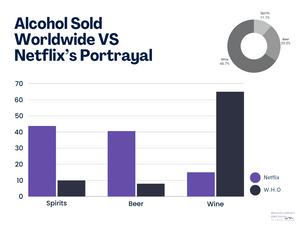
This really got me thinking. Why is Netflix depicting hard liquor as nearly half of everything that gets drunk when in fact it only represents 11%? Why so many neat spirits? Let me ask you another question. What do you find most triggering?
Maybe I’m being cynical, and maybe there’s another reason. Maybe.
Clearly, I have no proof that Netflix is taking money from big alcohol to subliminally influence the world to drink more. I cannot, in good conscience, put that in print. I’ll leave you to make up your own mind as to whether or not there is something going on.
If you’re not sure, grab some snacks, fire up the television, and do your own research.
Duncan Bhaskaran Brown is a speaker, author and Morris dancer. His new book Real Men Quit is available from Amazon in paperback, audio and Kindle.
When you’re headed somewhere new, you need a map. Whether you’re travelling cross-country or meeting someone at a new coffee shop, it’s helpful to know how you’re going to get there.
Recovery is no different. Many of us start on this path with a clear destination in mind; we want to get sober, but figuring out how we’re going to get there can feel intimidating and overwhelming. We know that we need to support our nervous system so that we stop reaching for alcohol as a tool to manage big and difficult emotions. However, there are so many options for how to do this that our efforts are often chaotic and ineffective This is where the Recovery Map comes in handy. This map offers a framework for organising our efforts to recover ourselves and stop drinking. It is the tool I used to conceptualise my recovery and it has become a cornerstone of my work with my clients.
Our struggles with alcohol affect every facet of our lives, from how we think about ourselves to how we treat our bodies, how we show up in relationships, to how we interact with the world around us. Because alcohol affects every area of our lives, we need a recovery plan that addresses every area of our lives. The Recovery Map gives you a holistic plan by considering 4 categories of your life (My Mind, My Body, My People, My World), allowing you to conceptualise what you’d like to do in each category and giving you the ability to organise your efforts to recover your life.
Start your recovery map by taking a sheet of paper and splitting it into four quadrants. Label the quadrants with the four categories above. Now, take some time to think about all the things you’d like to be doing to support your nervous system in the coming months and write those things in the appropriate category. ‘My Mind’ is your inner world. This is where you write down everything you’d like to engage with to take care of your inner realm.
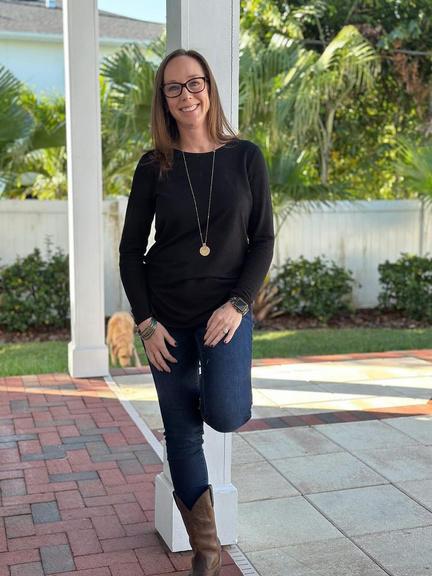
Things like meditation, journaling, creative pursuits, spiritual endeavours, etc. ‘My Body’ category encompasses your physical self. The things that belong here are related to nutrition, movement, hydration, and anything else that affects your physical body. ‘My People’ refers to your interactions with the humans around you. Some examples in this category are supportive relationships with a partner, engaging in therapy and attending meetings. ‘My World’ is a look at the environment in which you live. Things to include in this category are related to career, finances, home environment and travel.
Once you have a clear picture of what you’d like to engage with, you can begin to organise your efforts further to support your nervous system thoughtfully. Take 2 or 3 things from each category and create SMART goals for each of these endeavours. This way of organising your efforts removes overwhelm and leads to meaningful, sustainable change.
At the end of the day, sobriety has so little to do with not drinking and so much to do with building a life that has no room for alcohol. The Recovery Map gives you the ability to create a recovery plan that addresses your whole self in an organised and thoughtful way.
Reach out if you have any questions or want more information on how to use the map for yourself!
Whitney CombsHelping women create structured paths to recovery www.whitneycombs.com
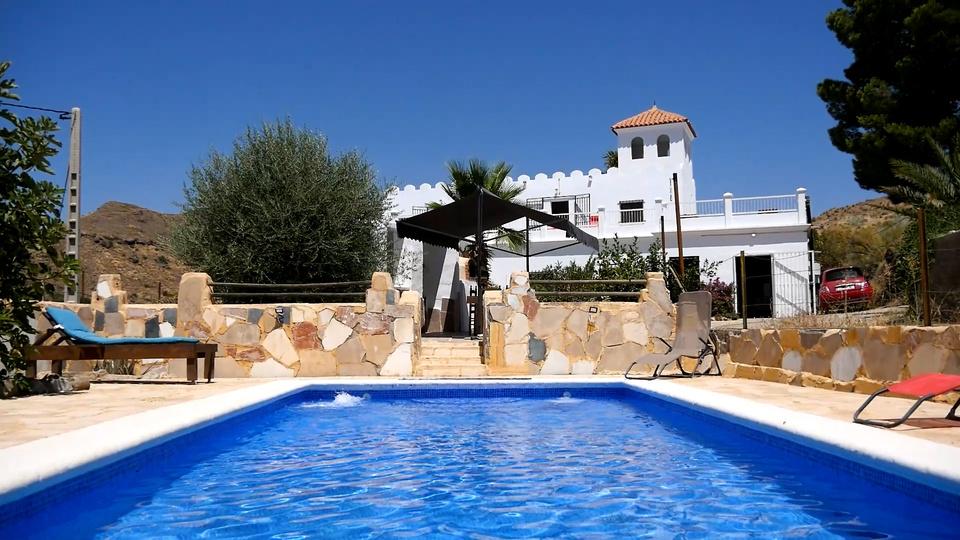
17 years ago, our lives were very different. An addict and an enabler, we’d been locked in this dance too long.
So we embarked on an alcohol-free journey. The recovery landscape was very different back then. Basically, you did AA/AlAnon or you did it alone. I know there’s always debate around AA, but in those early days, it was a lifeline.
The bright spots in those early years were the AA conventions. Usually held in rather run down, offseason holiday camps, these gatherings were a bit dreary during the day, filled with earnest meetings.
But the nights in the disco were a glimpse of what fun a sober life could be. From the first record to the last the dance floor was packed with sober dancers!
If the days were about looking back, the nights were about looking forward, celebrating being together. Celebrating by giving it everything on the dance floor. Celebrating the feeling of not being a sober person in an alcohol-filled world, but part of a sober, fun community!
After a couple of years. We moved on from the AA world. Our journey had become more focused on optimism for the future rather than a preoccupation with the past.
This new focus gave us the positivity to plan for the future, to maybe bring a little bit of the magic and community we’d felt at the conventions into our everyday life and share it with others. Fast forward 15 years and we are the very proud owners of Casa Torreta Blanca, a ten-bedroom retreat venue nestling in the Almeriense hills of southern Spain.
We’ve been here 4 years now. Moving in just a few weeks before Covid surprised us all! Not the start we were looking for, but the 2 years of lockdowns, travel restrictions and nervousness about travelling allowed us to do all the renovations and improvements that we wanted.
Now, at the start of 2024, we are looking at a pretty busy year ahead, and feel it’s time to share our good fortune.
We want to try to create some of the sense of community that we felt during those nights at the AA conventions at Casa Torreta Blanca, minus the fagburned carpets and sticky tables!
Our aim is to run our own retreats, focusing on the positives of an alcohol-free life. Our first alcohol-free retreat is going to be at Christmas 2024, a time fraught with concern as the world seems awash with alcohol! Maybe we’ll add one over New Year as well, if there’s enough interest.
Also, we want to open our doors to anyone else working within the AF community to bring their groups here as well - counsellors, mentors, coaches, instructors. If you have skills or knowledge that will help others maintain/enjoy their AF lives we want to find you! If you’ve never organised a retreat before we can even help you create and market one with our Retreat Building Bootcamp!
It's a fact that we live in a world where alcohol is not only the norm but is almost compulsory. But we should regularly escape to be in the company of other AF/sober people and celebrate with them.
For more information visithttps://www.casatorretablanca.com
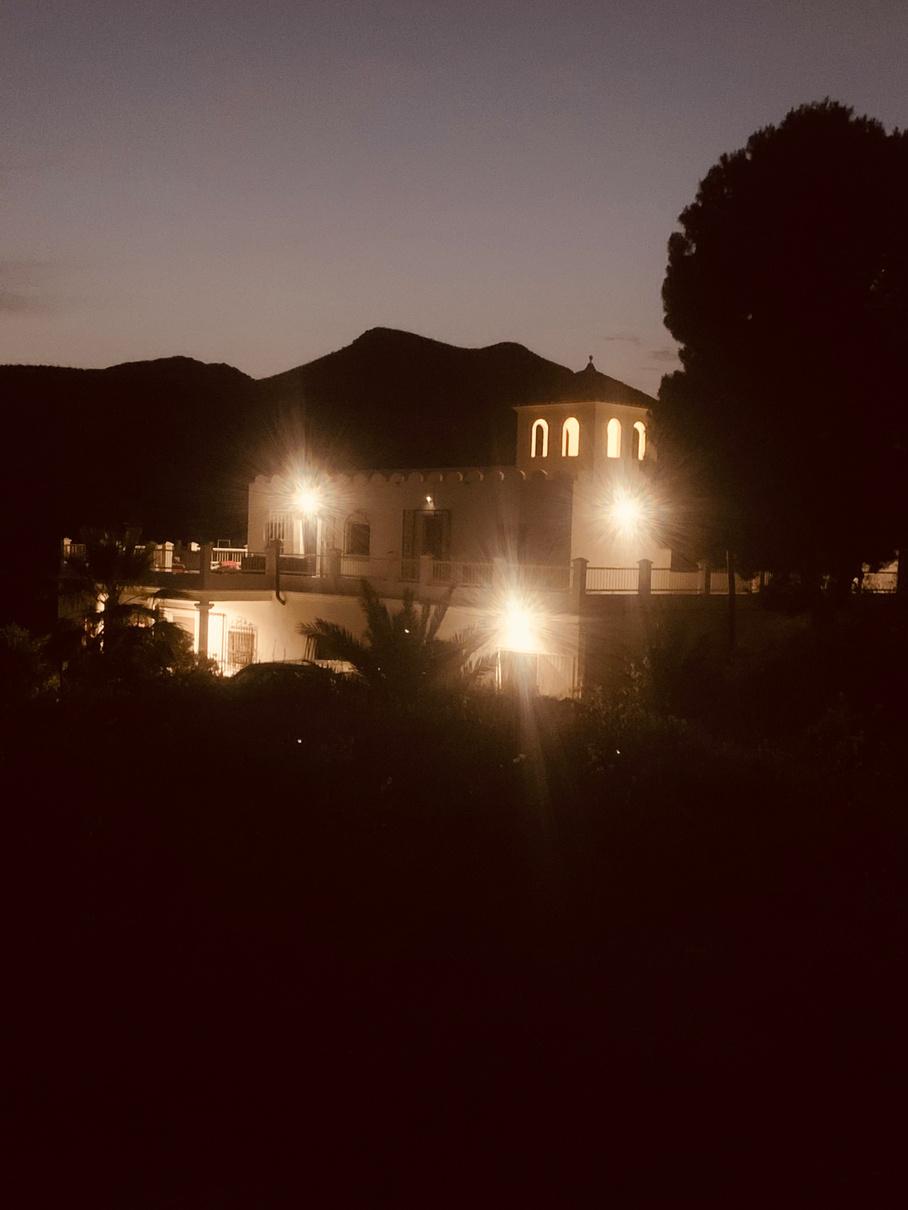
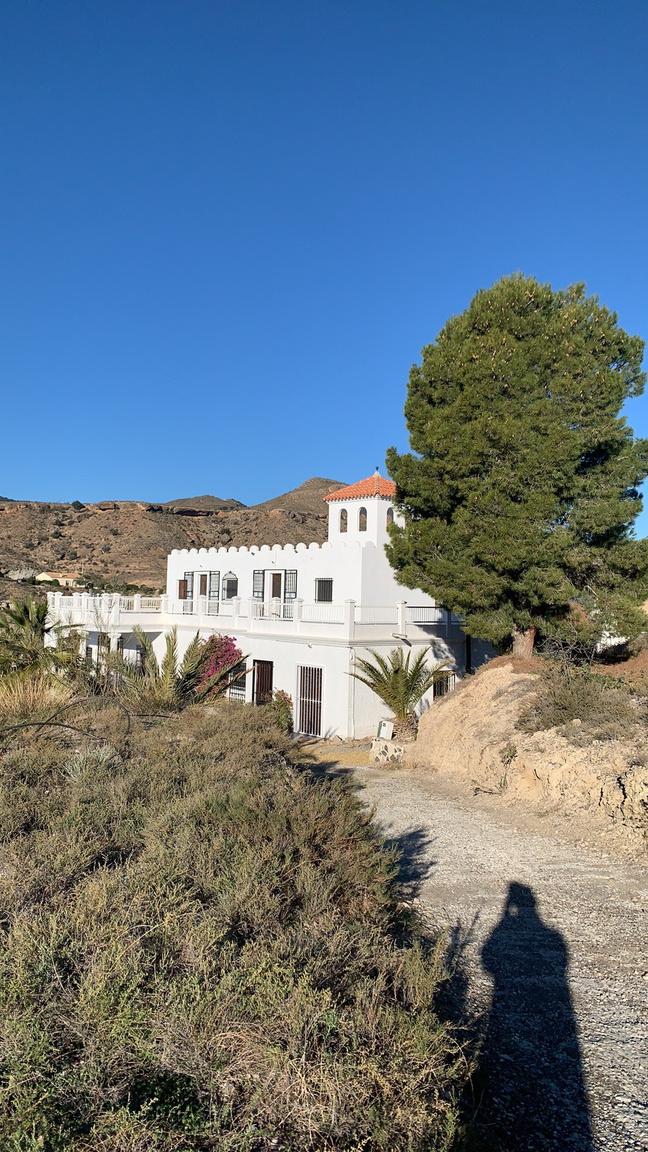

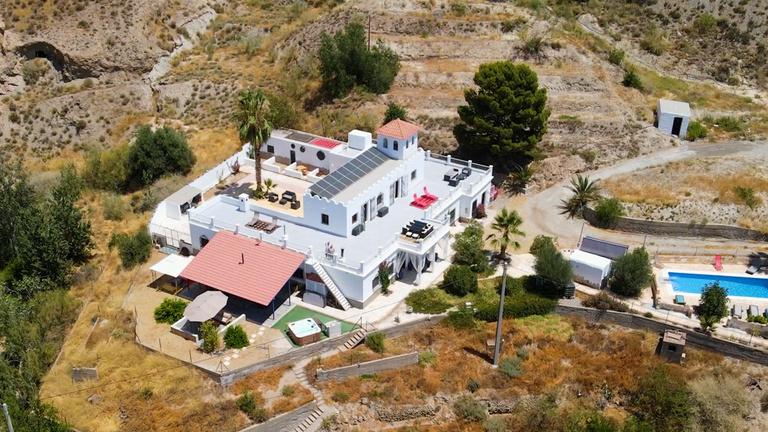
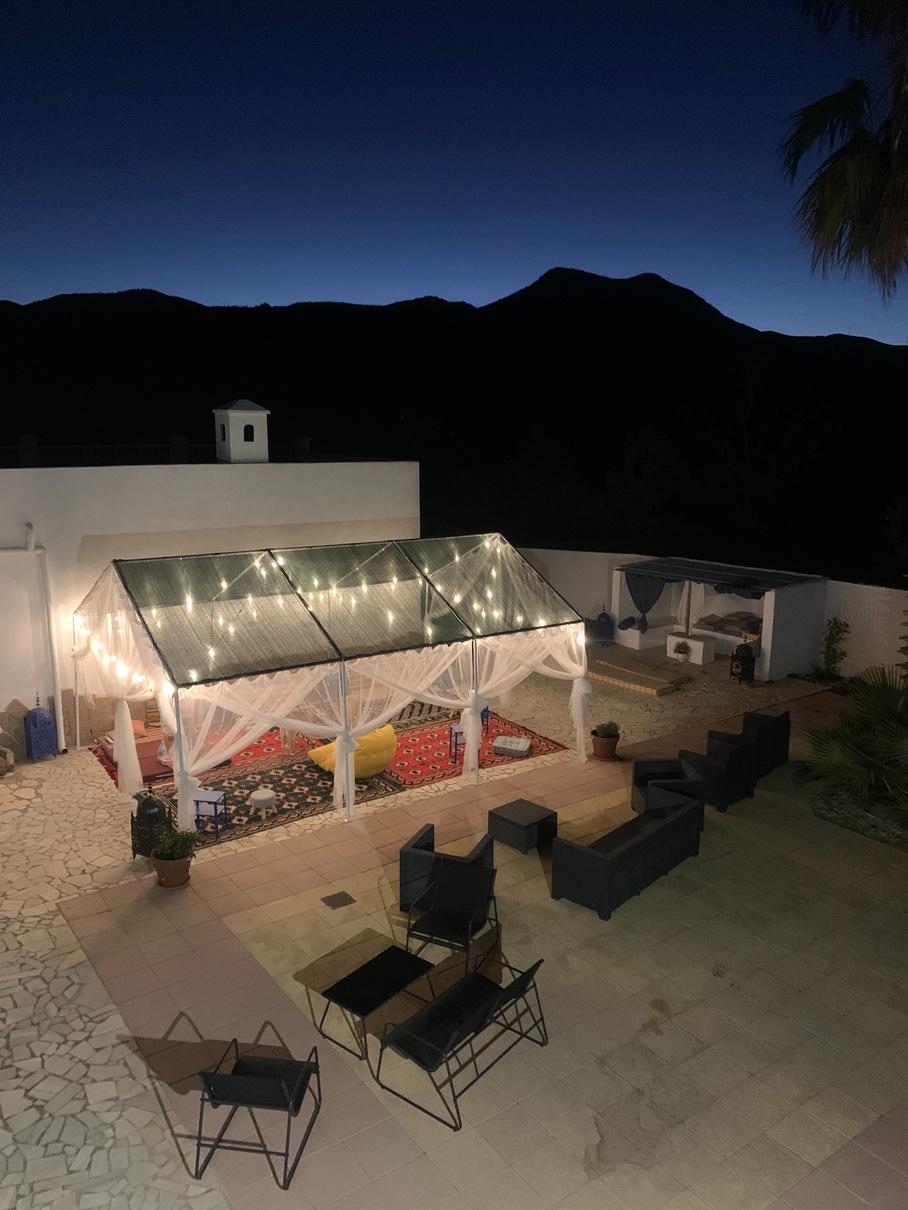

There is a common misconception that you need alcohol to have a good time, and if you don’t drink, you are missing out. It is important to remember that you never need to justify or explain your sobriety, especially if you are in a situation where everyone around you is drinking, such as at a party. Interestingly, sometimes the same people that will say, ‘Don’t you just want one?’ in a public setting are the same ones that will tell you how they admire your sobriety in private. In light of this, if people do not respect your sobriety or try to peer pressure you into drinking, then they are not your true friends! You should surround yourself with people who respect your choice to be sober.
Navigating university life can be daunting. Plunged into a new environment with new people and a buffet of academic and social opportunities, the pressure to find your tribe can be overwhelming. There is no denying that alcohol is extremely prevalent in university culture. A key contribution to parties, pub trips, and society socials—drinking for a lot of university students is a given and almost foundational to these group events. There is no doubt that at university, to be sober is to stand out.
My name is Roisin (Ro for short) and I’m a recent university graduate. After giving up the booze in December 2021, I spent my second half of university sober. After going through a mental health dip, I decided to stop drinking, mainly out of curiosity. Before this, I drank 1-2 times a week. The few months after I stopped drinking, I went clubbing more times than I ever had before (and I still vouch that sober clubbing is more fun than clubbing with alcohol; trust me!) I had way more energy, and as a result, my grades improved, and I was able to spend more time with friends. In a nutshell, choosing sobriety changed my life.
Often, the social scene at university can seem saturated with alcohol—literally! If you want to socialise within sober circles and meet more people who don’t drink, see if your university has any sober groups to join or if any societies run regular sober socials! It is worth branching out of university societies too and seeing if the town or city that you’re in runs any sober meet-ups! The Sober Girl Society is an example of an amazing community ‘for sober and sober curious women who are changing their relationship with alcohol’. Hosting virtual and in-person meetups, as well as dance classes and discos, CEO Millie Gooch has created an awesome community where you can meet like-minded sober folk and get your groove on!
As well as sober meet-ups, reclaiming the pub as another sober space when hanging out with friends who do drink can initially seem tricky. However, with so many alcohol-free options out there, whether a 0% pint or a Caleno 0% rum and coke is your vibe, there’s pretty much a 0% dupe for every drink—there’s even a 0% Guinness!
There is no doubt that being sober at university often feels strange, as drinking feels so prevalent and even important in order to fit in. But the truth is, it really isn’t. It doesn’t take anything away from your life to be sober—only a hangover!
Róisín Hamilton InstagramHi, sober friends! I’m Paul Summers Jr., author of Hide and Seek: A Dad’s Journey From Soulless Addiction to Sole Custody. Knowing what I can offer the recovery community came from a Toni Morrison quote, “If there’s a book you want to read that isn’t written yet, you must write it.” As an avid reader of sober memoirs, mine is of a dad who ends his relationship with addiction to have one with his child.
My imperfect sober journey begins on Christmas morning 1990, teetering on a barstool at 7:00 a.m. with the bartender asking, “Hey man, don’t you have somewhere to be?”
“Oh crap!” I slurred. Spinning horribly, I somehow drove home, then to see family. Upon arrival, I vomited nonstop.
Another promise to myself to quit drinking is broken. The disappointing shame, unbearable. I vowed to never use alcohol to hurt my loved ones, so I quit for over a decade. My line in the sand, however, didn’t include the other substances I abused more often.
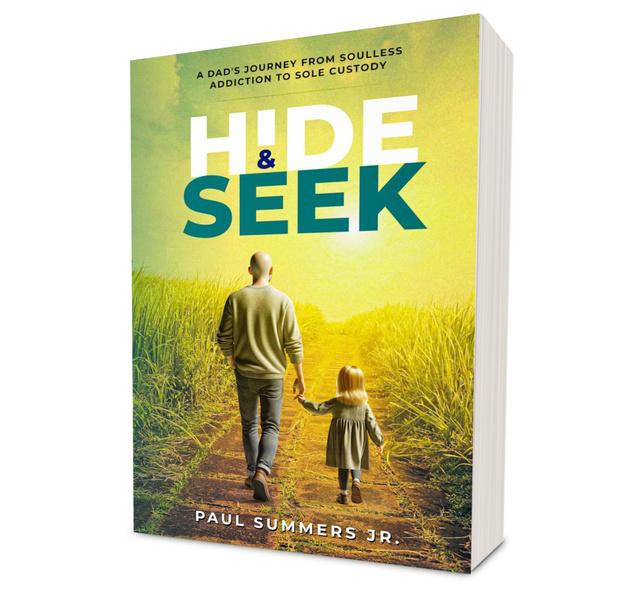
By the time my daughter was born, my disease of addiction was in full force. Yet I managed to stay sober. Around her third birthday, convinced my alcoholism had alas been beaten, I drank again. My problem was with opioids, white powders, and psychedelics, not booze. I swore on my grave I’d prove to everyone I’d save money and ween myself off the hard stuff by drinking. I became a blackout drunk who now had another substance to abuse. Hating myself unconditionally and impossible to be around, I deemed death an appealing way out.
Then, on 06/26/2007 my daughter was taken from me by her active-addict mother. I had a choice that day: get high or get help. The year span that followed –including the tragedies which preceded my being granted sole custody, and stories of the miracles of sober parenting—is why my memoir needed to be written.
Writing filled me with emotional emptiness at a time when my brain kept defaulting to asking what there is left for me to do. Perhaps it had something to do with my daughter and two bonus stepkids who were going through their natural teen distancing thing. For whatever reason, I wasn’t content doing what’s suggested to stay sober: stepwork with someone who’s worked the steps, being of service on committees and hotlines, sharing my experience, strength, living amends and healthy lifestyle.
Then it dawned on me. By praying to my Higher Power, I’m given guidance. In sharing a recovery, connection and protection story for sober curious families, I’m giving back, ever grateful for God’s blessings. This story offers insight when other paths aren’t working. It’s my ‘why I do it.’
Paul Summers - AuthorAuthor “HIDE and SEEK” Pre-Sale link: https://paulsummers-jr.ck.page/cfbf83756e www.paulsummersjr.com
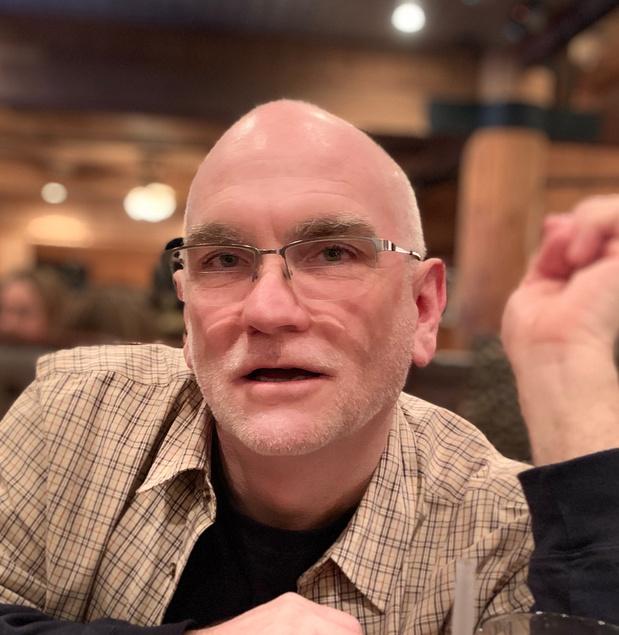
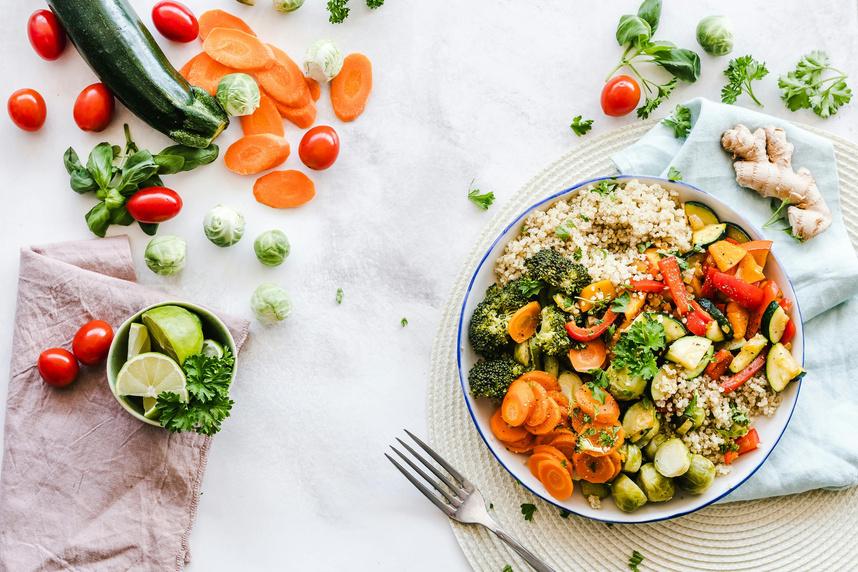
When you choose to stop (or reduce) drinking, you’re choosing great things for your health. Maybe not immediately but, over time, you should start to feel ‘better’ in so many ways.
But instead of simply waiting for things to happen, why not take action and maximise on how good you can feel? And such a brilliant way to do this is to nourish your body and mind with the foods that you eat.
It doesn’t have to be complicated. Focus on eating wholefoods - foods that are in their most natural, unprocessed state – and you should start to see wonderful changes; improved digestion, higher energy levels, better mental clarity and even a strengthened immune system, to name just a few.
As wholefoods have undergone minimal processing, they retain as much of their natural goodness (vitamins, minerals, antioxidants and fibre etc) as possible. Processed foods, on the other hand, may contain added sugars, artificial preservatives, and other additives that can often be detrimental to your health, as well as containing empty calories you really could do without.
Fruits, vegetables, wholegrains, lean proteins, and healthy fats are all classed as wholefoods and there are multiple ways you can incorporate them into your ‘diet’.
1. Replace processed snacks with fresh fruits or veg sticks and hummus. Swap refined grains for wholegrains, and experiment with adding more vegetables to your favourite dishes.
2. Add in more plant-based foods, such as legumes, nuts, and seeds. These are crucial for a healthy gut and, in turn, for a healthy body and mind.
3. Every different colour of fruit and veg will contain different compounds and nutrients that our bodies need, so always aim to eat the rainbow.
4. Plan your meals ahead and maybe even batch cook so you have nutritious meals to turn to, especially on those busy days.
Why not add some of these in, as you take the booze out…
Leafy Greens: Packed with vitamins, minerals, and antioxidants, leafy greens like kale, spinach, and Swiss chard are an easy and effective way to support the liver.
Berries: like blueberries, strawberries, and raspberries provide a boost of natural sugars that can help fight off cravings for junk and are rich in vitamins and minerals.
Fatty Fish: Salmon, mackerel, and herring are excellent sources of omega-3 fatty acids, which play a crucial role in brain health and mood regulation.
Nuts and Seeds: Almonds, walnuts, chia seeds, and flaxseeds provide essential nutrients, healthy fats, and fibre, promoting heart health and satiety.
Quinoa: A versatile wholegrain, quinoa is a rich source of protein and fibre that gives a slow release of sugars, keeping your blood sugars steady and helps to prevent mood swings.
Probiotic-Rich Foods: Fermented foods like kefir, sauerkraut, and kimchi are brilliant for improved gut health and digestion.
It’s not always easy to remove the booze but nourishing your body with delicious wholefoods can really help you to feel your best along the way!
If you want to learn more about why eating a variety of plant-based wholefoods can positively impact your health and want practical guidance, tips and tricks on how to easily do this, join my free 7-day Plant Powered challenge starting on 15th March 2024.
Visit @archanapatelhealthcoach for more details or email hello@archanapatel.co.uk
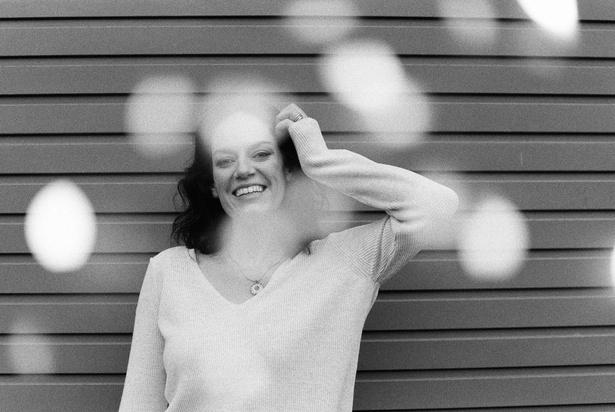
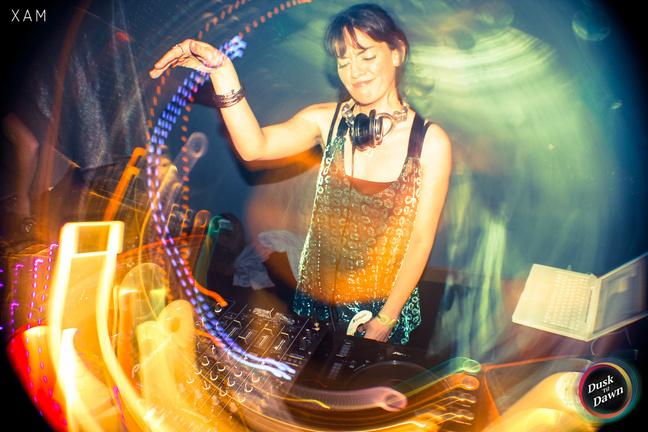
For me, clubbing and booze always went hand in hand.
Drinking appeared to lead to many fun moments, and I was convinced it allowed me to let off steam after a stressful week working as an Occupational Therapist. It also seemingly offered me the confidence I needed to chat with club promoters when I was trying to get DJ gigs. Immersed in the dance scene in my 20s and 30s, I was a “grey area” drinker who frequently binged at the weekends.
But as time’s gone on, like for so many reading this magazine, the balance tipped.
I now have two children and my own photography business. When I was still drinking alcohol, I often felt overwhelmed, coupled with a nagging low-level anxiety which increased further after a night out.
After an evening of DJing in Manchester in December 2022, something shifted. It was the ‘final straw moment’ and the day I broke up with booze.
But where did this leave my relationship with my beloved clubbing and dance music? Would I even still want to go out?
I always used to think that alcohol enhanced my clubbing experiences. But I’ve found that the buzz has very little to do with the booze. The dark, immersive (and often hot and sweaty) environments promote a feeling of escapism. The bass-heavy beats help to soothe my mind. And of course, it’s the people you’re with who can make or break a night.
I’ve not yet been to a sober club night. I love that they exist and for many, they’re a crucial connection to the dancefloor. There’s House of Happiness and Dry Disco down south, and Flamingo AF and Drywave in the north, amongst others. Many even have pre-event meetups for those attending solo.
While I’d love to go along to a sober night at some point, my clubbing choices tend to be led by the DJs on the bill and I have a long bucket list of artists I still want to see. I love small, intimate nights, with a friendly mixed-age crowd. We Are Sticky Heat in Manchester is one such superb night that I discovered after going AF.
Helpfully, more DJs are starting to talk about sobriety openly, such as Patrick Topping, Timanti and DJ Rebekah. There are some helpful social media accounts too, such as @happy.tuesdays on Instagram that offer wellness tips for clubbers, presenting a more balanced view of a historically hedonistic lifestyle.
Leaving alcohol behind needn’t mean we have to wave goodbye to the dancefloor too.
Ginny Koppenhol - Photographer linktr.ee/ginnykoppReducing alcohol intake can be part of a holistic approach to managing endometriosis, alongside dietary changes and stress management.
My name is Trish Tucker May and I’m a Menopause Functional Nutritionist with a dedicated focus on gut health and hormonal balance.
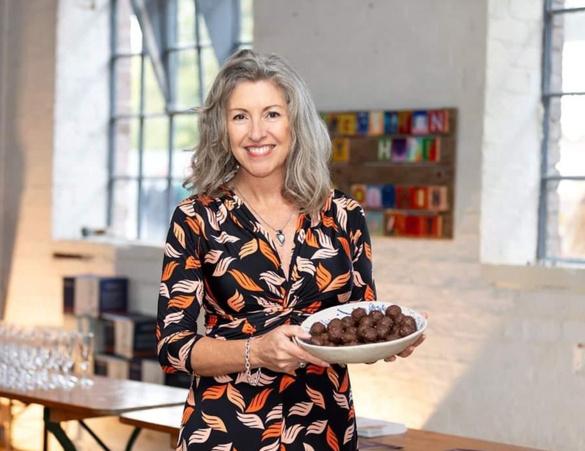
It is Endometriosis Awareness Month in March
Did you know that alcohol can have a significant impact on endometriosis, a condition where tissue similar to the lining inside the uterus grows outside of it, causing pain and potentially affecting fertility.
Alcohol consumption exacerbates endometriosis symptoms for several reasons:
With my extensive professional experience and years of clinical practice, I’ve developed a deep expertise in pinpointing and effectively tackling the underlying causes of digestive and hormonal imbalances.
I’d like to explore not only the common theories and myths surrounding endometriosis but also delve into less discussed yet crucial contributing factors such as Müllerian Anomalies, Epigenetic Changes, Environmental Toxins and Immune System Dysfunction.
Environmental Toxins: Exposure to certain environmental toxins, such as dioxins and polychlorinated biphenyls (PCBs), has been suggested as a potential contributing factor to endometriosis. These toxins can disrupt the hormonal system and may lead to the development of endometrial-like tissue outside the uterus.
1. Inflammation: Alcohol can increase inflammation in the body, which may worsen pain and inflammatory responses associated with endometriosis.
Hormonal Imbalance: Alcohol can affect hormone levels, particularly estrogen, which can encourage the growth of endometrial tissue.
2 Liver Stress: The liver is responsible for metabolising estrogen, and excessive alcohol can impair liver function, leading to higher estrogen levels that can aggravate endometriosis.
3 Immune Function: Alcohol can impact the immune system, which might affect the body's ability to fight off the abnormal growth of endometrial tissue.
4 Reducing alcohol intake can be part of a holistic approach to managing endometriosis, alongside dietary changes and stress management.
They are found in industrial waste, alcohol, contaminated food, and certain consumer products, potentially affecting us through ingestion, inhalation, or skin contact. But also synthetic xenoestrogens are found in paint, poison and polish. Women who are constantly dying their hair, painting their nails and spraying perfume onto their body are exposing themselves to toxins that are absorbed through the skin.
Working with a Functional Nutritionist can help by addressing chronic inflammation (a contributor to immune system dysfunction), reducing exposure to environmental toxins, reducing your alcohol and providing ongoing support, education, and motivation to help you make sustainable changes.
Reach out if you need support trish@trishtuckermay.com and www.trishtuckermay.com
Yesterday, I went three weeks without alcohol. I was feeling as if I were one of the lucky problem drinkers experiencing spontaneous sobriety. There are no temptations, irritability, or a compulsion to drink. Just a few slight triggers. The greatest occurred while preparing a summer dinner party. Clearly, I was unknowingly attached to my two glasses of wine while cooking. Come to think of it, over the last year, this had become my own party of one happy hour. Over time, the impetus for an evening of solo drinking became the not-so-happy hour. The "I’m bored" hour. The "I’m stressed" hour. The "You name it" hour, or 3.
I had moments of worry, leading to several failed attempts at moderation. No more hard liquor. Only one glass a night. Ok, two; definitely no more than three. What if I begin at 6 instead of 5, gradually increasing to 0 o’clock.
In hindsight, each attempt was an effort to tap into my unconscious thinking, as Annie Grace would put it. Consciously, I had been there for a while. In some ways, I’d always been there, but the rationale was not strong enough. 23 years later, and it’s become loud enough for me to answer the big question. Am I an alcoholic, and will I ever be able to drink again? Even worse. What’s going to come to the surface if I stop drinking? What have I unknowingly been hiding from?
I bought Catherine Gray’s The Unexpected Joy of Being Sober and ding ding, I entered the ring facing my greatest opponent to a life of drinking, The Big Book, Alcoholics Anonymous.
Both allowed me to consider two different approaches, all while leading to the same destination: Soberville. Did I or do I even want to be there? I still don’t know. I do know that I don’t want to spend every day fighting against a compulsive craving. Especially while standing over an uncovered, plastic folding table with cold metal legs and drinking subpar coffee in a styrofoam cup under fluorescent lights in a rec centre basement. No shame to those who find solace or offer support in such an atmosphere. We’re lucky to know that when such help is needed, it’s not only available, but it works for many.
Instead, I want to continue to live my life, enjoying all of the things that I enjoy now, only without alcohol.
Put me in a beautiful bar surrounded by the warm amber glow of well lit liquid filled glass bottles, masculine leather booths, and black and white porcelain floor tiles reminiscent of Paris, or at least the Paris depicted on television that I’ve yet to visit. Cue Carrie lost in Paris soon to be rescued by Big Give me laughter, conversation, and a warm embrace, but please don’t put me in that basement.
As I read, my fears began to be replaced by an understanding that alcohol use and its subsequent reactions fall on a spectrum rather than a dichotomy of alcoholics vs. nonalcoholics. People who can’t drink vs. people who can, or let’s just cut to it, those who have a problem and cannot control themselves while exhibiting self-destructive behaviour vs. the rest of the upstanding citizens of the world.
What made me start writing for the very first time today? 1. My husband is growing tired of my alcohol cautious citations and 2. I drank alcohol yesterday.
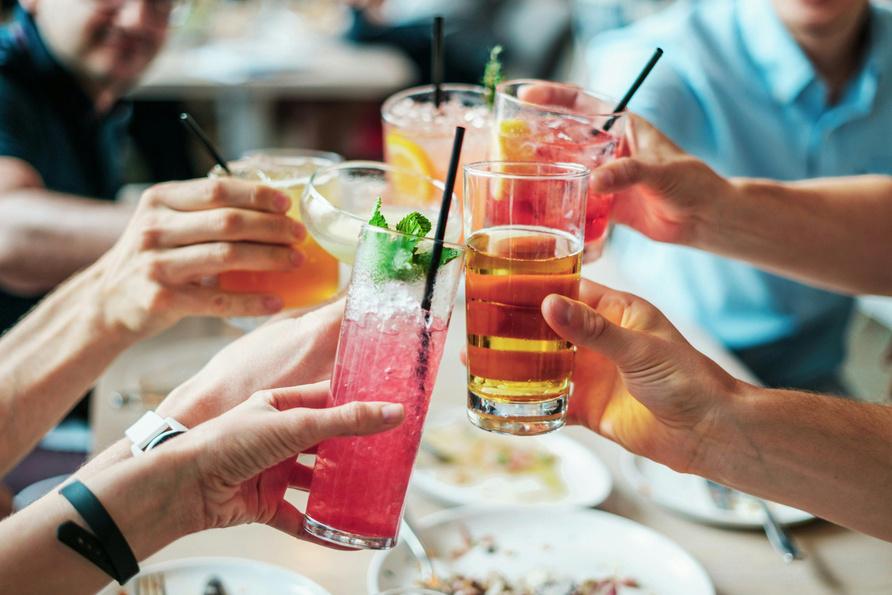
I made the decision with full sobriety, full curiosity, and, mistakenly, full consent. Prior to the day of my summer dinner party, I felt confident that I wouldn’t drink. Not me! How could I when I’ve read 7 books in the last 2 months, ranging from topics and styles like quit lit, the big book, self-compassion and codependency. I knew that my enjoyment had nothing to do with alcohol, that it would only numb the experience, and just last week I had another social event that I handled effortlessly. I was ready. That is until I began to set the stage. A cooler full of wine and beer here. A Tom Collins cocktail pitcher there. The colours, the glass bottles, the nostalgia! I was the Willy Wonka of refreshing summer libations! So maybe one wouldn’t hurt. I've proven to myself that I’m not the most extreme case, and I have been curious about abstinence versus moderation. As Matthew McConaughey would say, yesterday’s red light led me to a greenlight today!
I indulged in 3 drinks over 5 hours, checking in on my bodily and mental sensations, and I had a great time moderately drinking. So how do I feel today? I’ll tell you about it tomorrow, but for anyone feeling like you’re ready to swim with the other fishies in Moderate Lake, I’d say: stay on the beach!
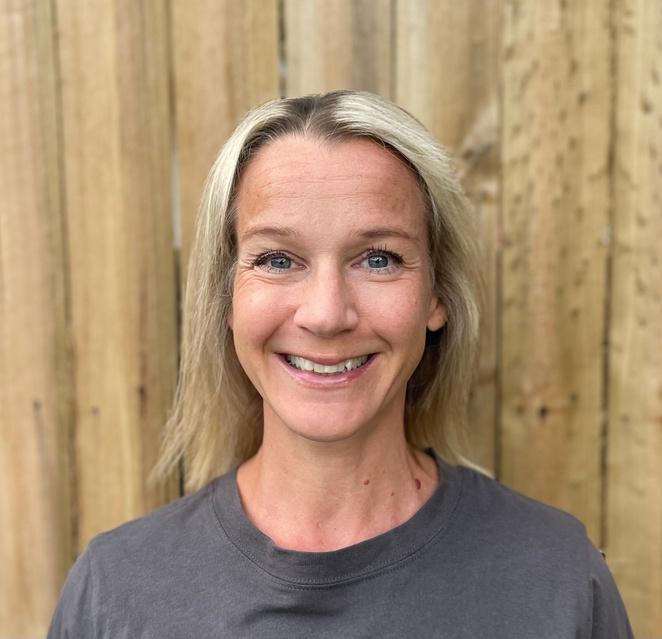
In the novel Demon Copperhead by Barbara Kingsolver, one character tells another, ‘There could be good shit up ahead; don’t rule it out’. My version of this quote would read, ‘There IS good shit up ahead; don’t rule it out”. This quote got me thinking about how so many of us can’t imagine that a life without alcohol will be okay, let alone better! And yet, I have never heard a single sober person say they regret getting sober!
Alcohol lied to me, and it’s lying to you too. Alcohol reinforced my fears and told me I was not good enough. Alcohol told me I needed it to make up for my shyness and lack of self-esteem. Yet the more I drank, the more my self-worth plummeted.
I know I am not alone in this experience. Although alcohol is a stimulant in the short term, drinking regularly acts as a depressant and increases anxiety. I thought the self-loathing, anxious, ‘not enough’ aspects of my personality were integral to who I was. But they weren’t. Turning to alcohol to cope with that inner critic was a bad decision. Drinking regularly through my teens and twenties only served to reinforce my negative self-image and tell me that my dreams were not achievable. And I believed it.
Ten years into sobriety I am stunned when I compare how differently I approached life before and after I stopped drinking. During my twenties, when my social drinking was ostensibly under control, my self-esteem was on the floor. I dismissed career paths because I had zero confidence in my abilities. I didn’t get a single job offer after the interview because I was too nervous to answer the interviewers’ questions competently.
By comparison, I got the first job I went to interview for after getting sober! I felt a little anxious, but nothing I couldn’t handle. Sitting in an interview and thinking to myself, ‘I can do this job just as well as the next person, was an incredible feeling! I got this job just two months into sobriety. It took only two months of being alcoholfree for my self-worth and confidence levels to improve so drastically!
When you think you can’t live without alcohol, you are so wrong! When you discount a future that you can’t even begin to visualise, you are making a terrible mistake. It can be scary at the beginning, but please believe me when I say that sobriety will improve all aspects of your life infinitely!
A year into sobriety, I moved from the UK to Australia. I sought work in the fitness industry and bought and ran a small gym. The members trusted and respected me. They called me a ‘leader’! I became a successful businesswoman and won awards, including the National Australian Franchising Award!
This life is a ‘life beyond my wildest dreams’ because even my wildest dreams could not conjure this up! When I was drinking, I would never have believed in this future for myself or in this future version of myself. Removing alcohol allowed me to discover the real me and believe in myself. There’s no stopping me, and there’ll be no stopping you either!
Kate DavidsonTwitter: @sunnykatewrites
Substack: @sunnykatewrites
